Our experience travelling to Antarctica on Hurtigruten’s MS Midnatsol ship was one of the most memorable adventures we have ever had! A formal itinerary is impossible to provide to guests in advance of the expedition, since things can change quickly depending on wind speeds, waves, shore conditions, and a host of other factors. We learned this firsthand during our expedition, but more on that later.
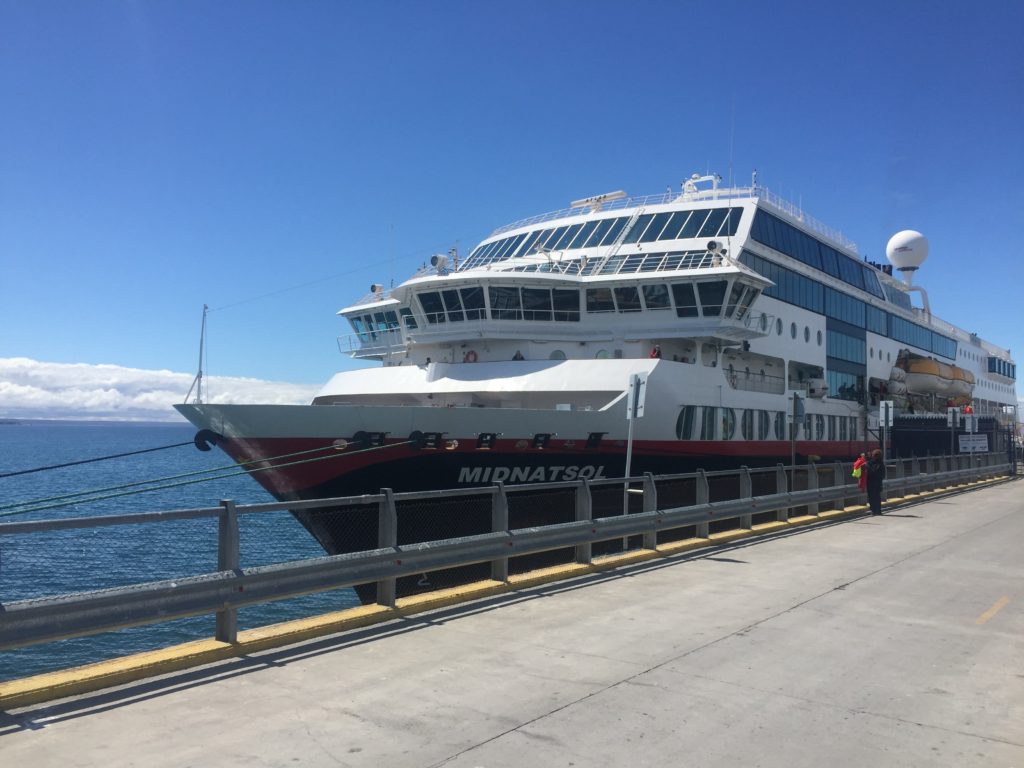
What we did know in advance is that our expedition would begin in Montevideo, Uruguay and we were scheduled to visit Puerto Madryn, Argentina followed by the Falkland Islands and then Antarctica. We also knew that the final port of call would be Ushuaia, Argentina.
Below is our day-by-day itinerary of our 16-night experience on the MS Midnatsol from October 22, 2018-November 7, 2018.
Related Posts
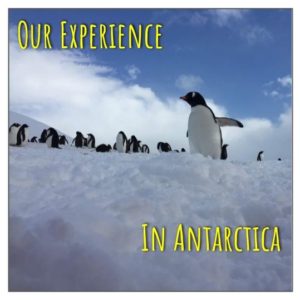 |
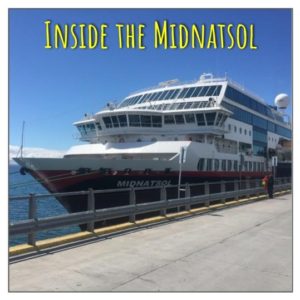 |
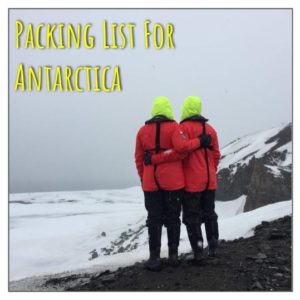 |
Itinerary
October 22: Montevideo
As the port of embarkation was in Montevideo, we arrived a couple of days early to see Montevideo and taste chivito. Check out our post “Why Uruguay is Awesome” for more information about this great country!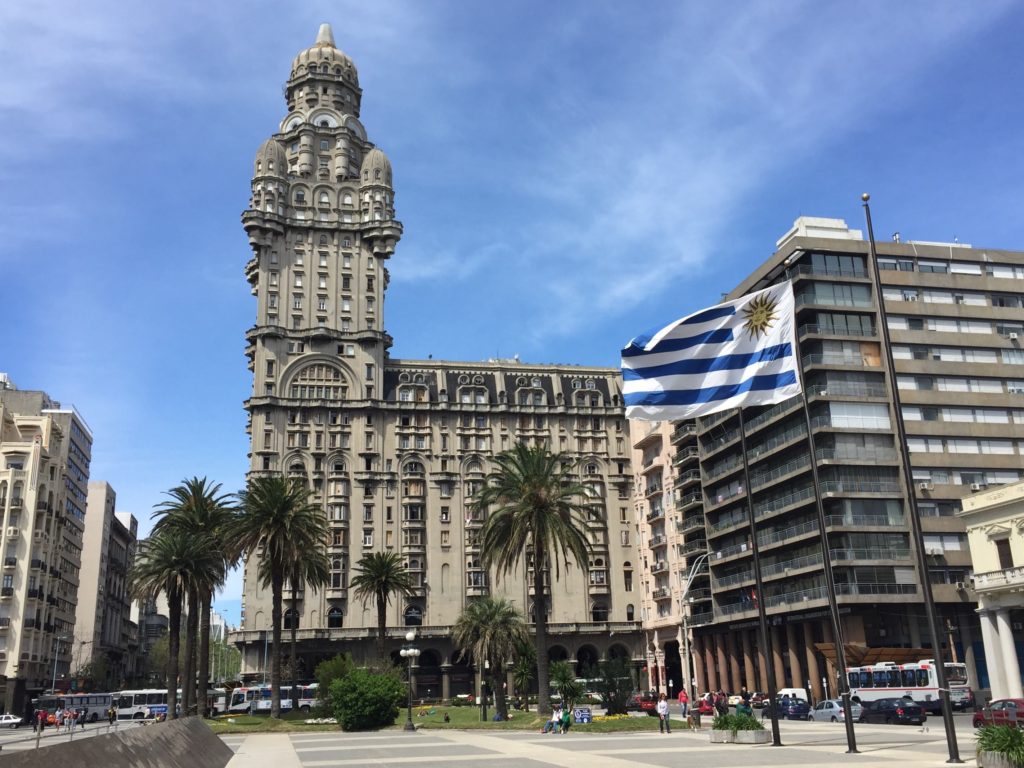
October 23-24: At Sea/Puerto Madryn
We spent our first full day at sea and arrived at Puerto Madryn, Argentina in the evening of the 24th. After feeling a little nauseous and wobbly, we were happy to disembark around 10pm to stretch our legs. We were also able to see many Southern Right Whales from the ship on the way to the port!
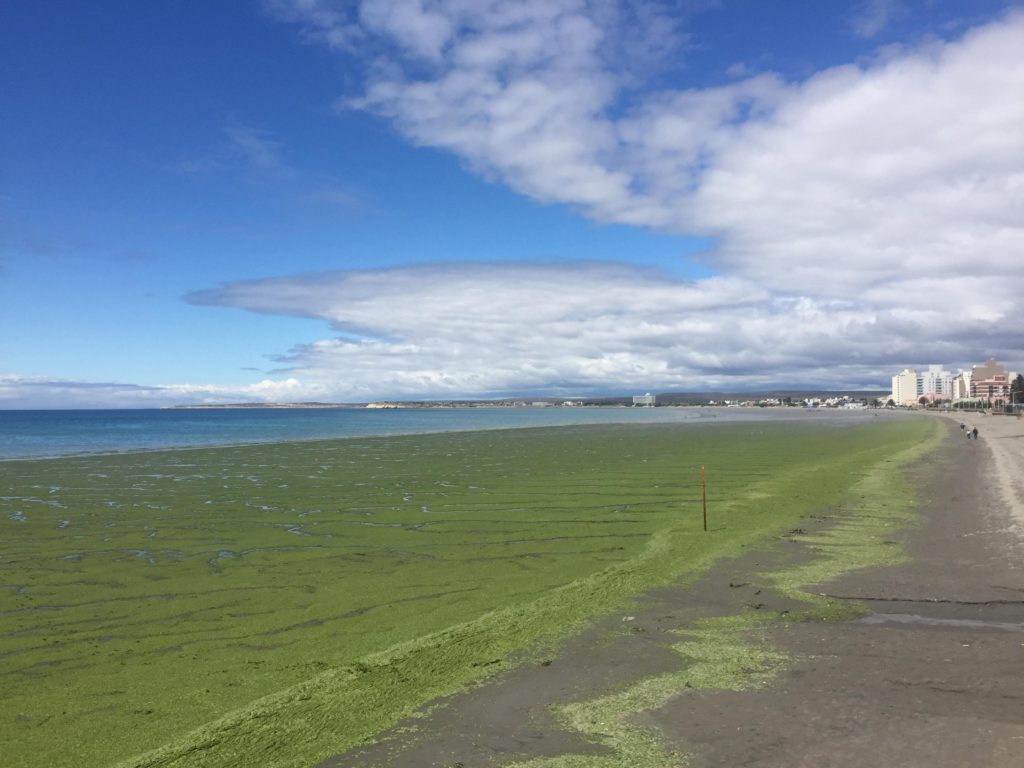
October 25: Puerto Madryn/At Sea
Some passengers paid to go on excursions, such as snorkeling with sea lions, whale watching, and wildlife viewing. We opted to explore the quaint town independently. After a nice walk to the peninsula, we were rewarded with the sight of nearly a dozen whales gleefully swimming in the harbour!
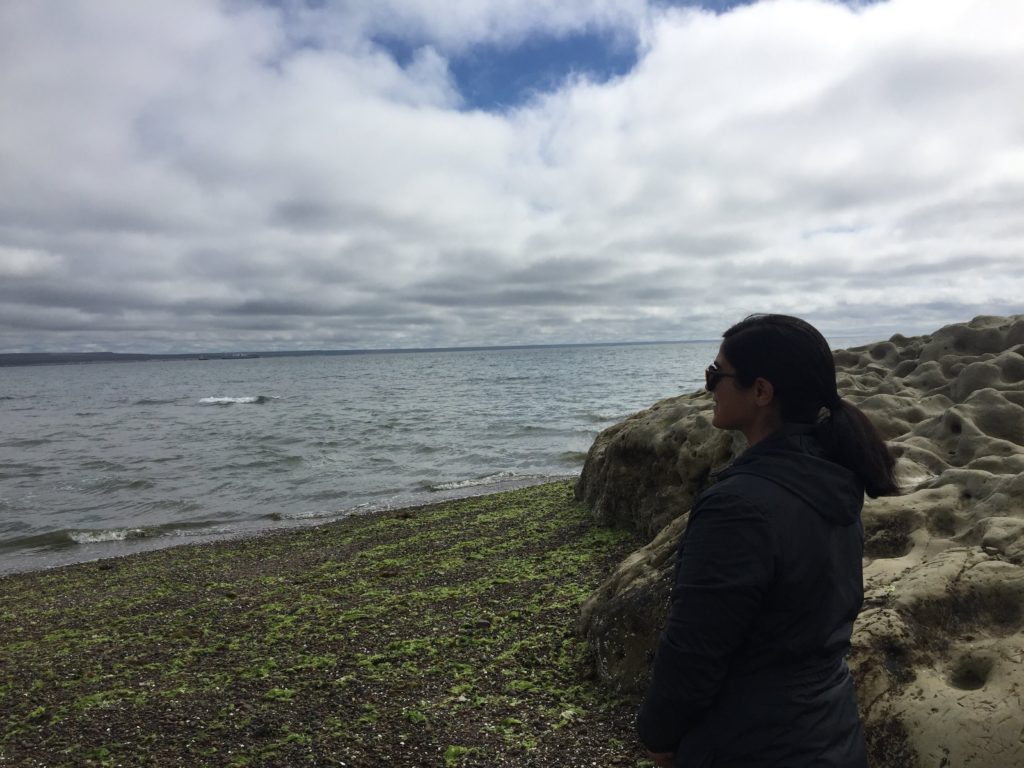
We also had an opportunity to catch up with family using the free wifi at the mall, since internet on board was prohibitively expensive! The ship departed Puerto Madryn in the early afternoon and we saw many more whales! One even jumped out of the water right beside our ship!
October 26: At Sea
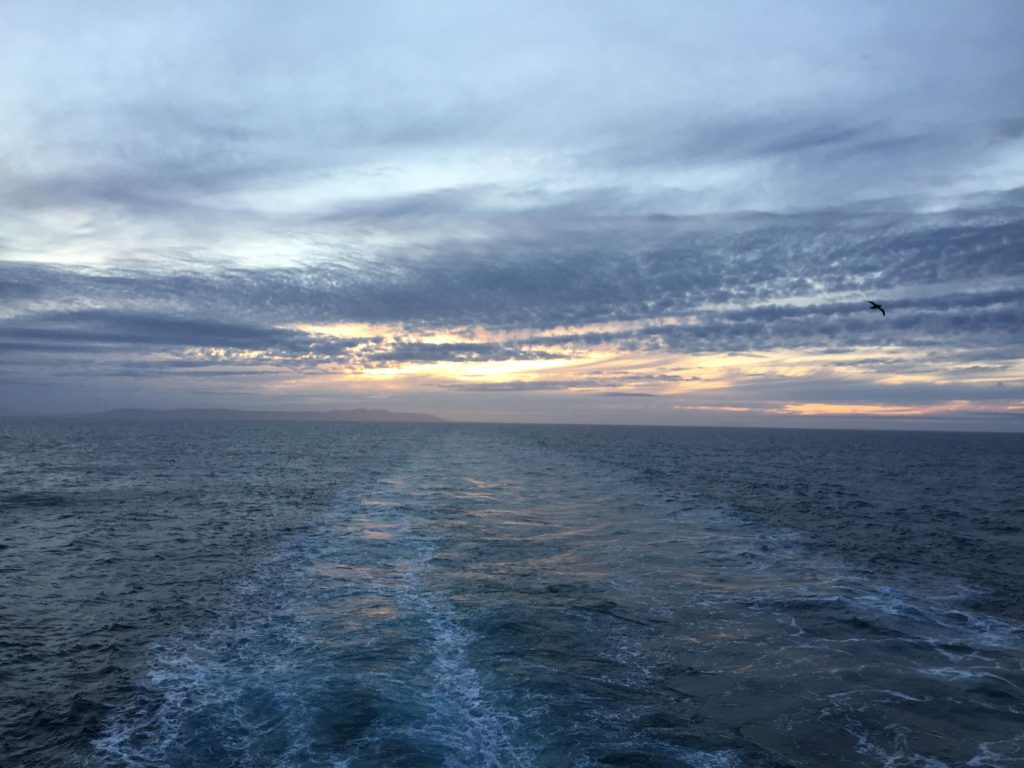
October 27: New Island, Falkland Islands
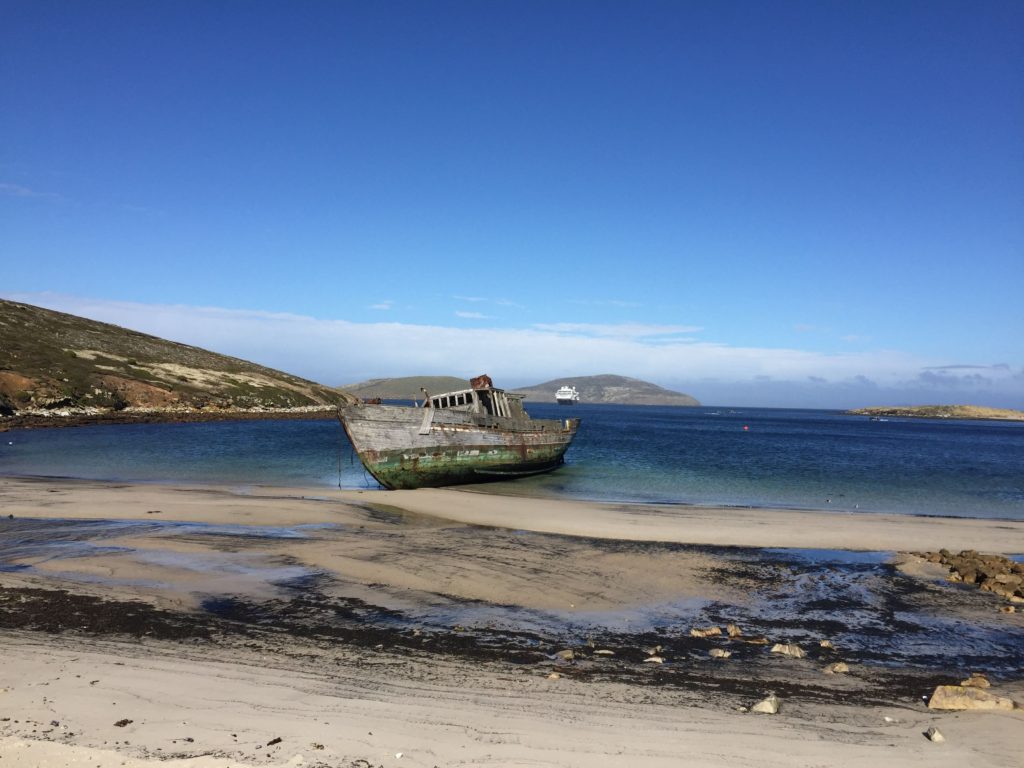
After a long and fairly rough day at sea, we arrived in the Falkland Islands. Our first stop was New Island. Our landing was delayed because of wind, but we ended up with gorgeous weather later in the day! We used the smaller tender boats for the first time, which was exciting!
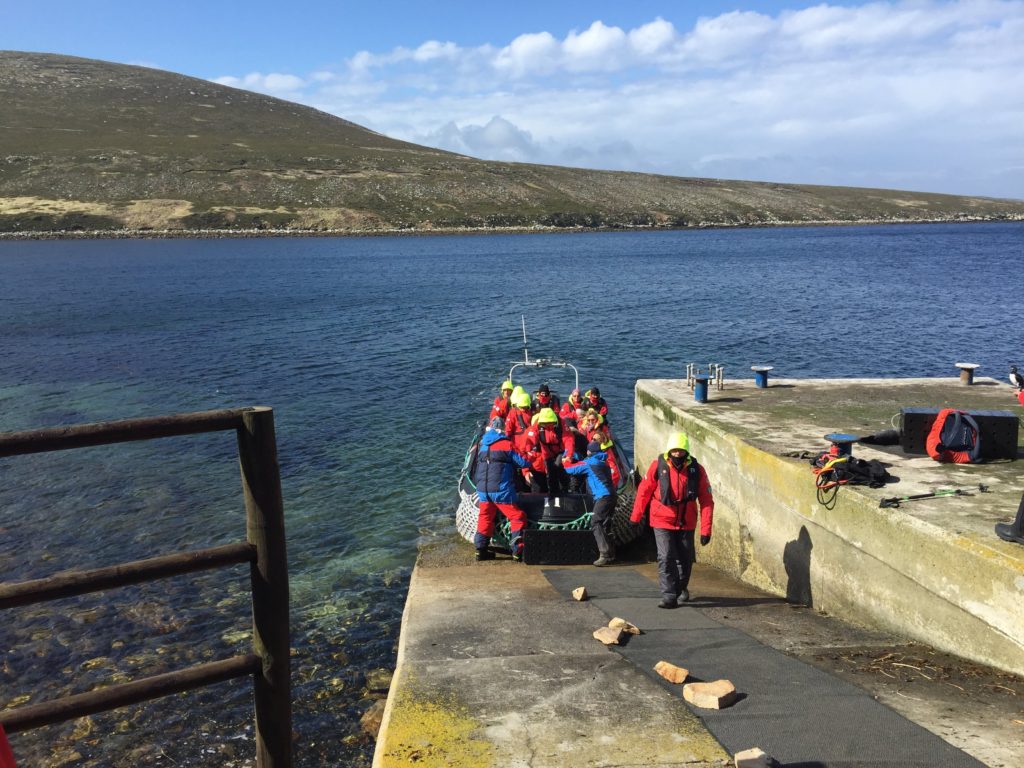
With nearly no human inhabitants, New Island is home to thousands of rockhopper penguins and giant albatross birds!
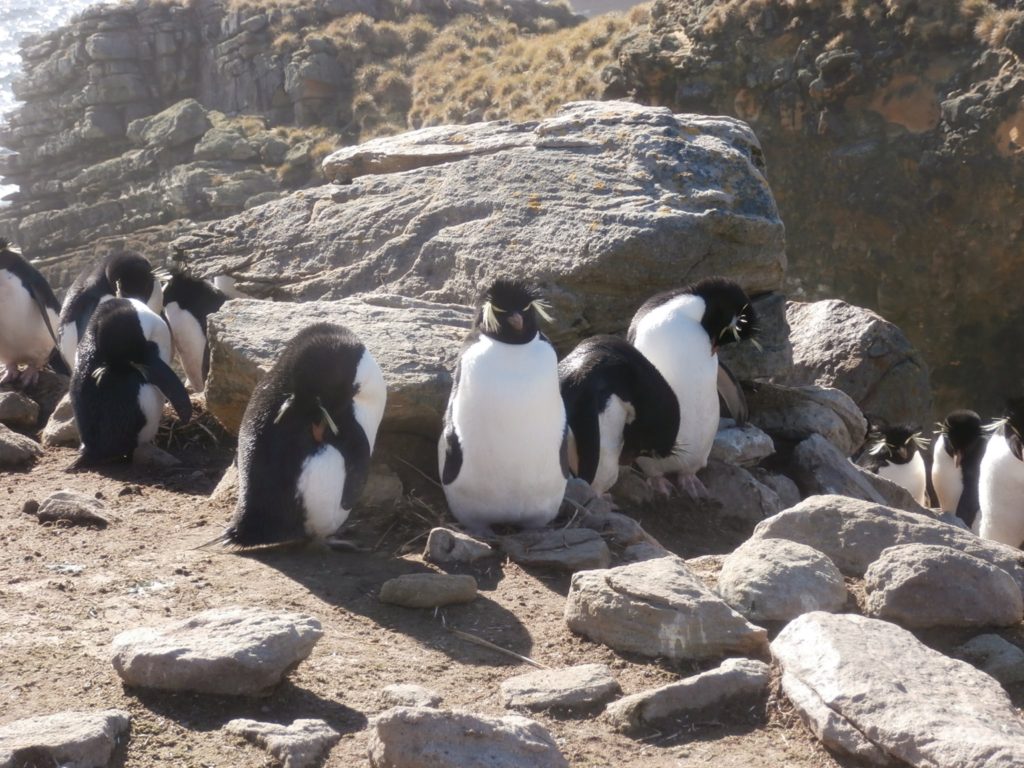
The rookery is located on a cliff, with thousands of these birds filling the air with their loud screams. We also hiked to the top of a ridge, giving us an amazing 360 degree view of the island from above!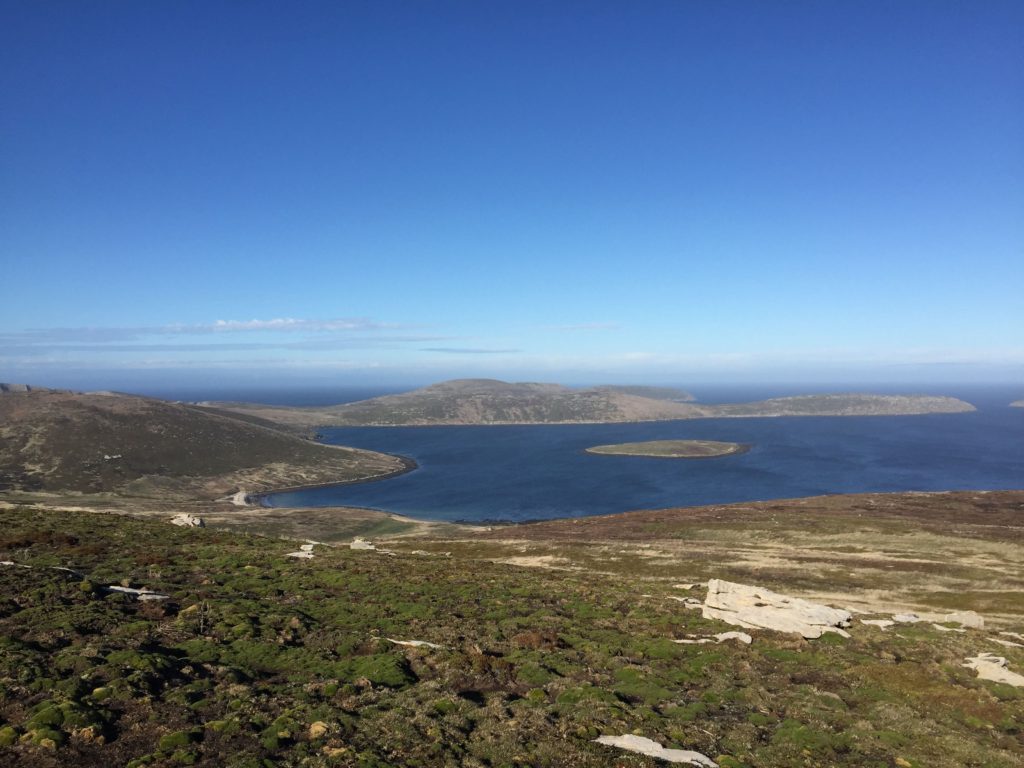
October 28: Carcass Island, Falkland Islands
We used the tender boats to reach the shore again and this time, we were among the first groups to go (the order alternated during each landing to keep things equitable). We were dropped off near a small settlement on Carcass Island.
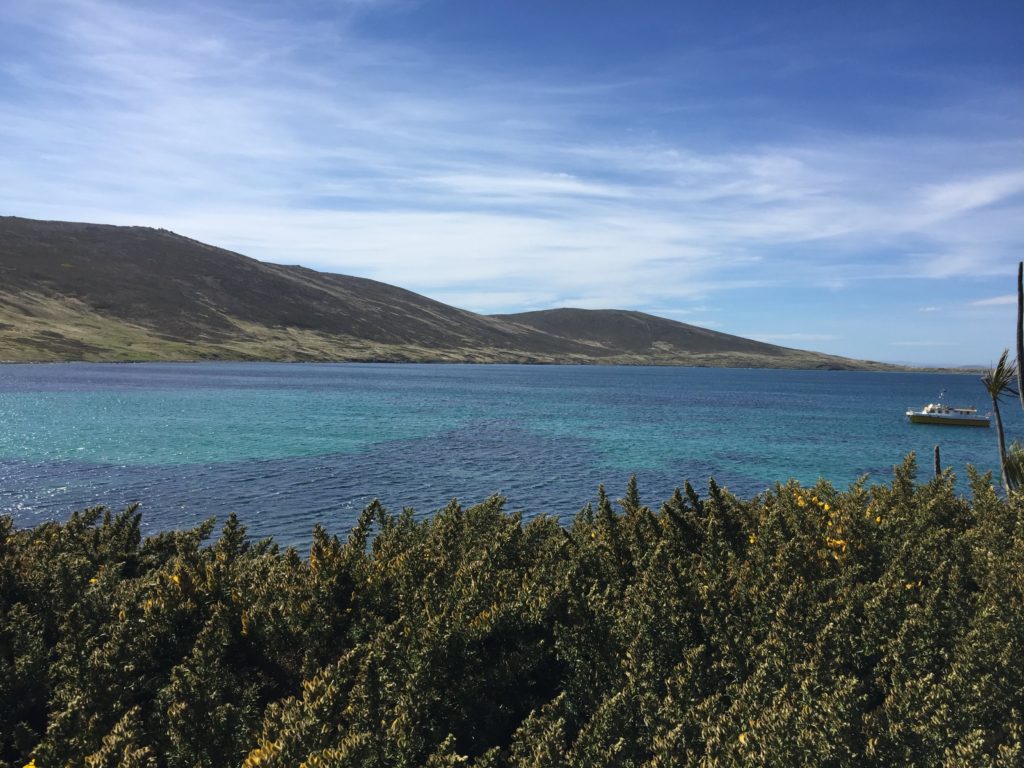
Our adventure included a nice 5km hike to the other side of the island to Leopard Beach. A school of dolphins mesmerized us, as they playfully jumped in and out of the water only a few metres from the beach!
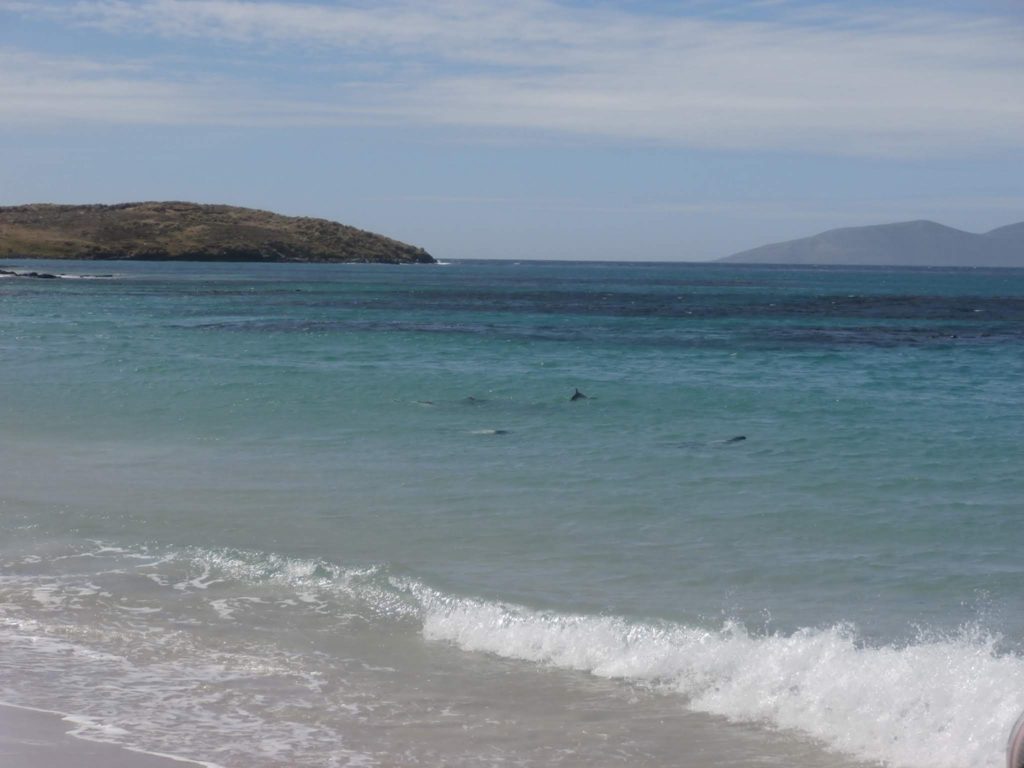
We also saw many species of birds all over the island, such as the black-browed albatross. We could feel the breeze on our necks, as these giant birds swooped over our heads! From the beach we could just get a glimpse of the Magellanic penguins.
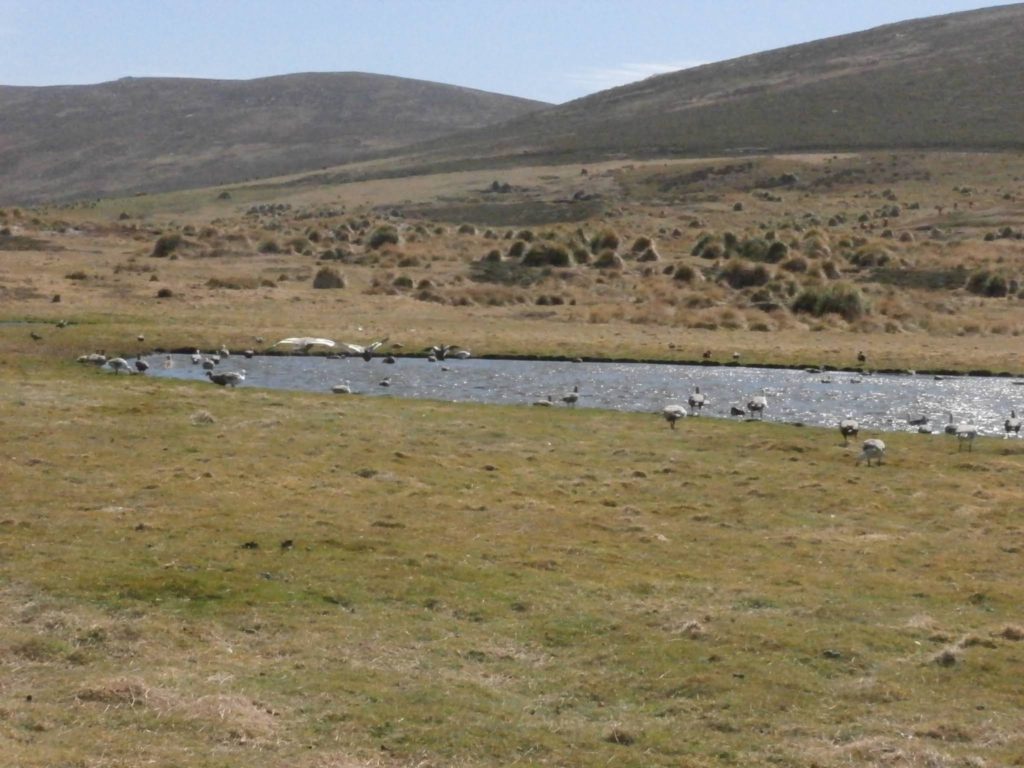
During our hike back to the settlement, we were stopped on our path by a group of Gentoo penguins travelling on their “penguin highway” from the waterfront up a hill. It is important to stay off these highways to allow the penguins to feel safe and not threatened. It was incredible to stand still and watch these adorable birds waddling about in their natural habitat a few short metres away from us!
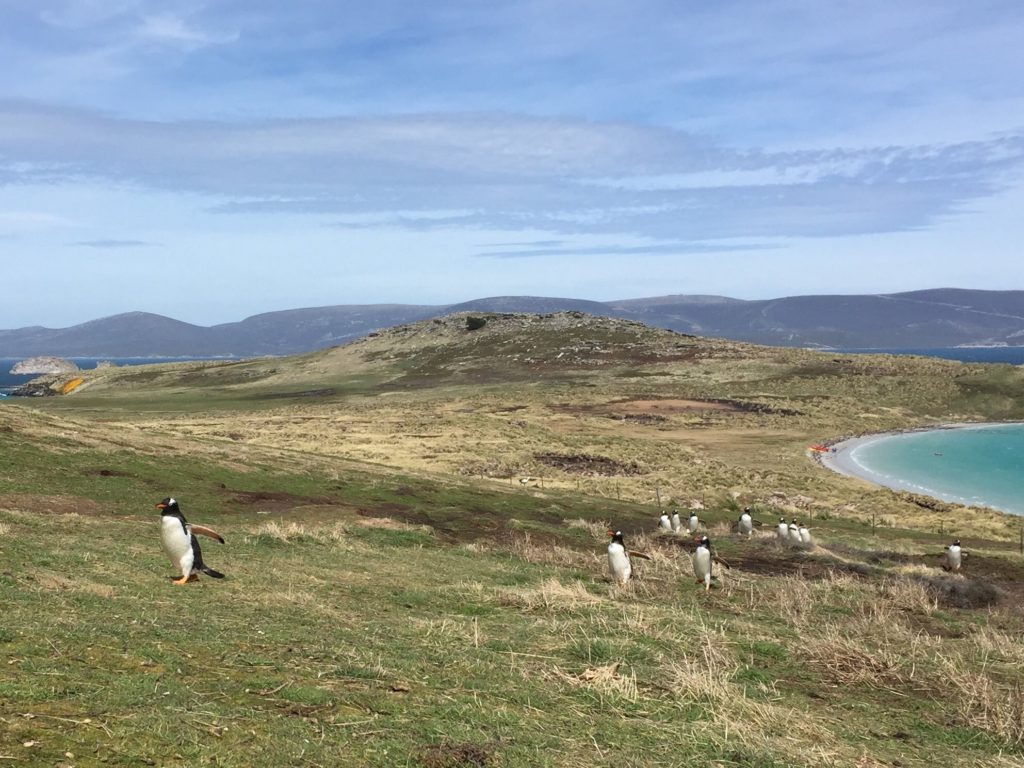
Upon return to the settlement, we were invited to tea, which included a huge assortment of sweets and coffee or tea! It was an excellent way to cap a great day on Carcass Island!
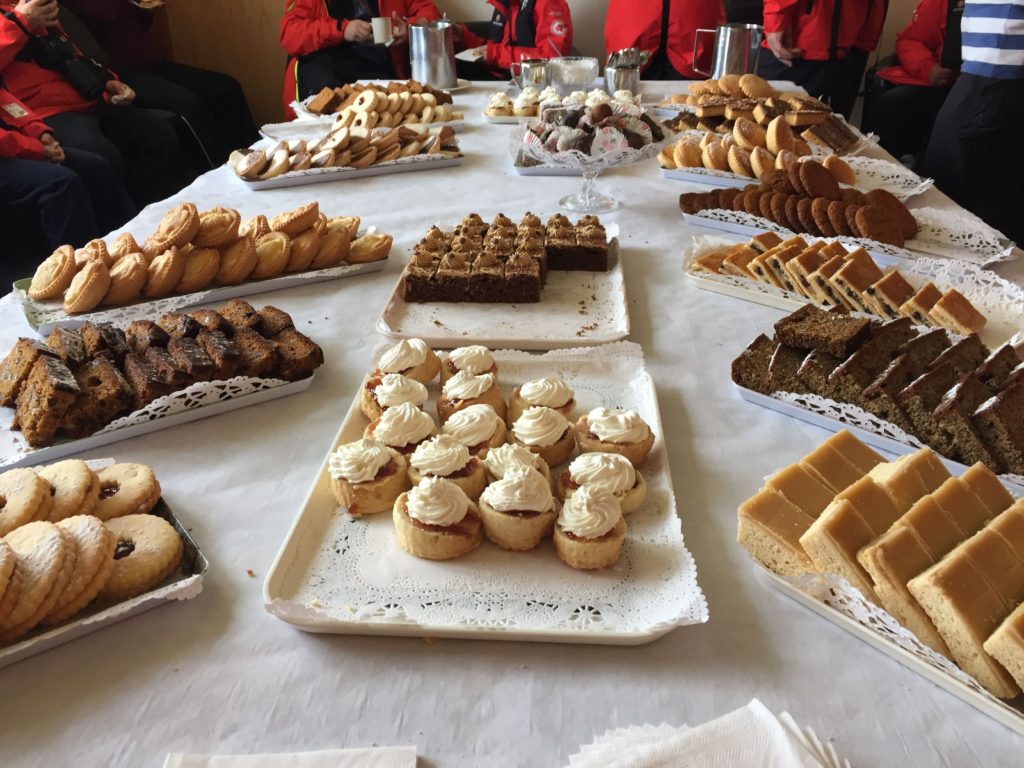
October 29: Stanley, Falkland Islands
There are approximately 700 islands that make up the Falklands, but two of them, West Falkland and East Falkland, are significantly larger. The town of Stanley is located on East Falkland Island and is the biggest settlement. Many passengers took paid excursions in and around Stanley, such as Bluff Cove which is home to King, Gentoo, and Magellanic penguins.
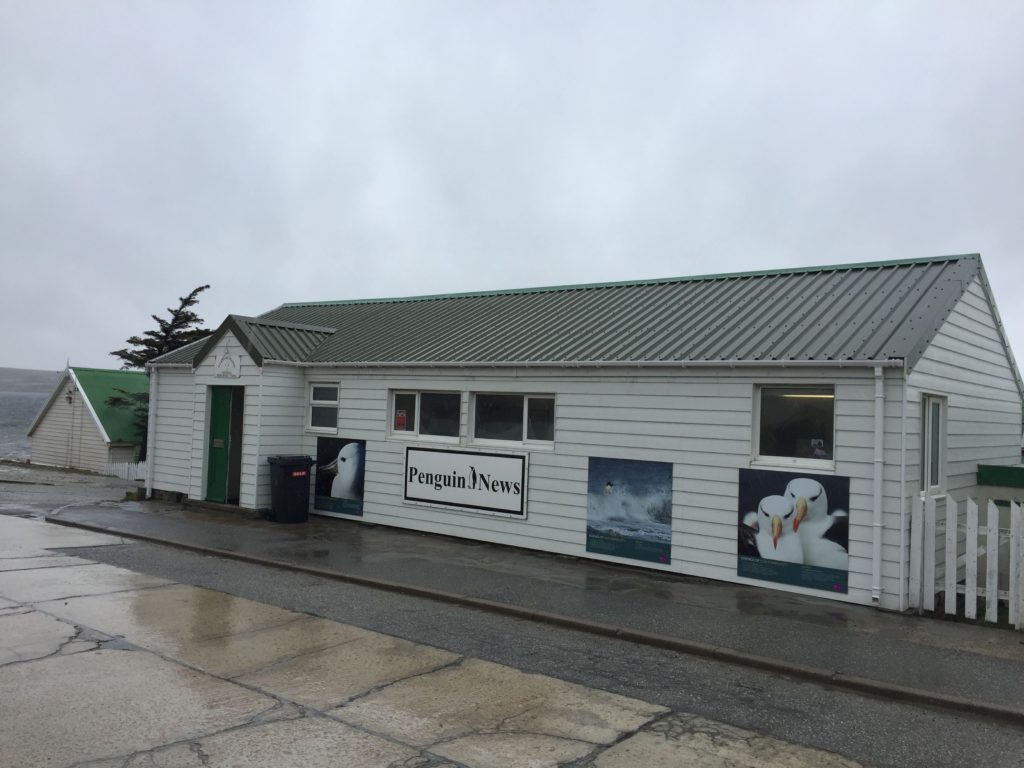
We decided to explore the town on foot, and were hoping to walk a few kilometres to explore Gypsy Cove independently. Unfortunately, the weather decided it would make our visit a little less comfortable with strong winds and pouring rain all day!
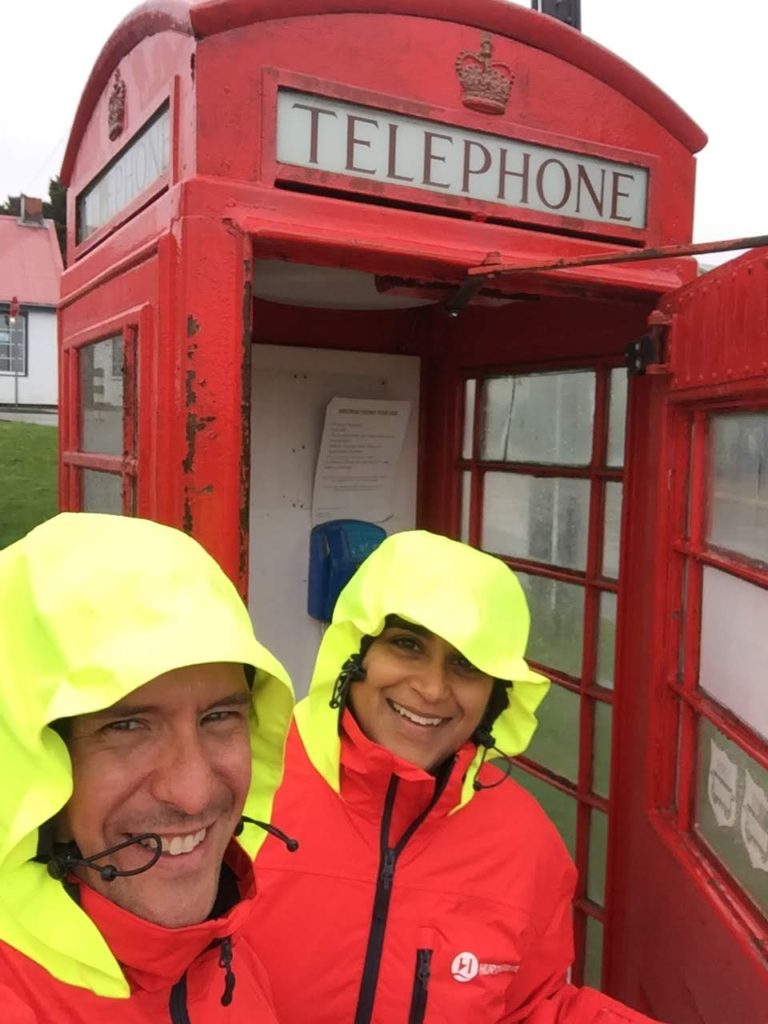
Despite the unfavourable conditions, we made the most of it, exploring some of the shops in town and the museum. The Falkland Islands Historic Dockyard Museum was a welcome refuge from the rain. The museum was fascinating and provided us with an excellent history of the Falklands, including information about many of the founding families, Falklands War, wildlife, and information about the 2013 Falkland Islands sovereignty referendum.
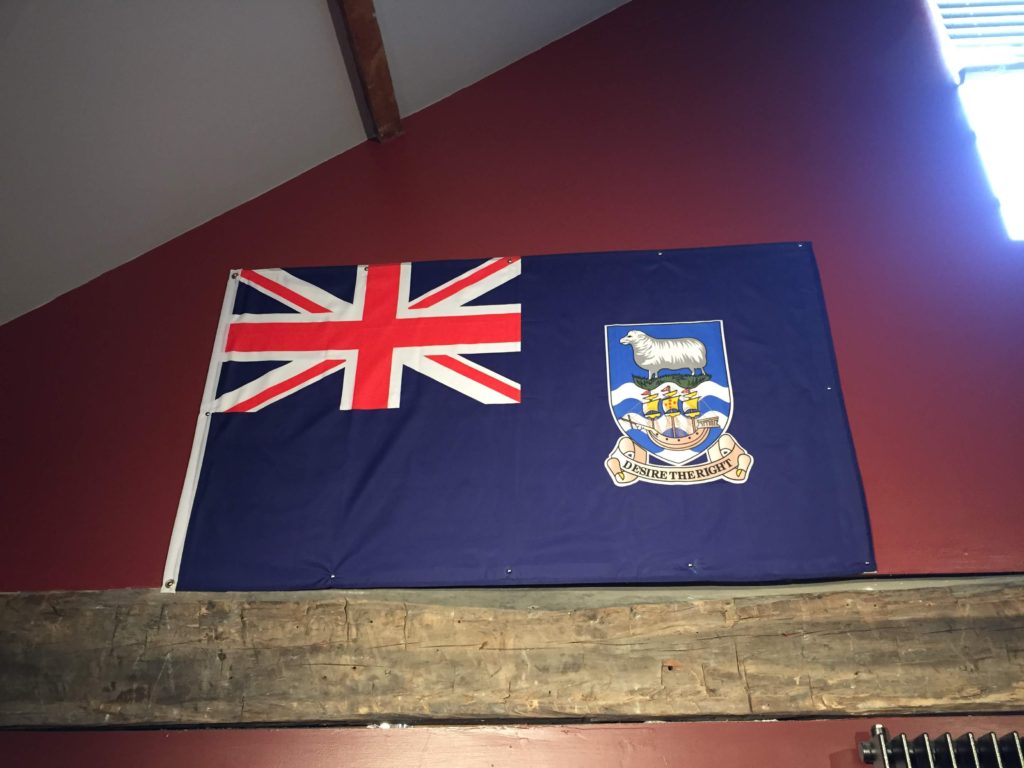
We finished our visit to Stanley by sampling a pint of the local Falklands Brewery beer at Victory Pub, a traditional British pub. A pint and a cider cost £6.50. The Falkland Islands have their own currency (pegged to the pound sterling, and used interchangeably, from what we noticed), and we noticed USD and Euros were widely accepted.
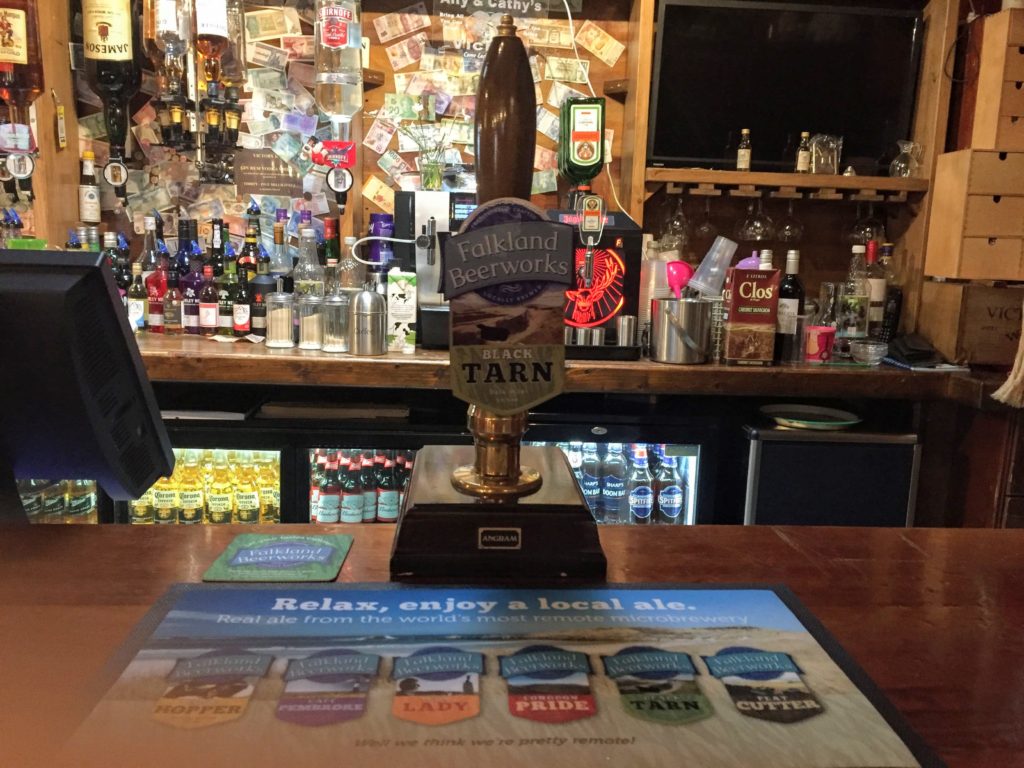
October 30: At Sea
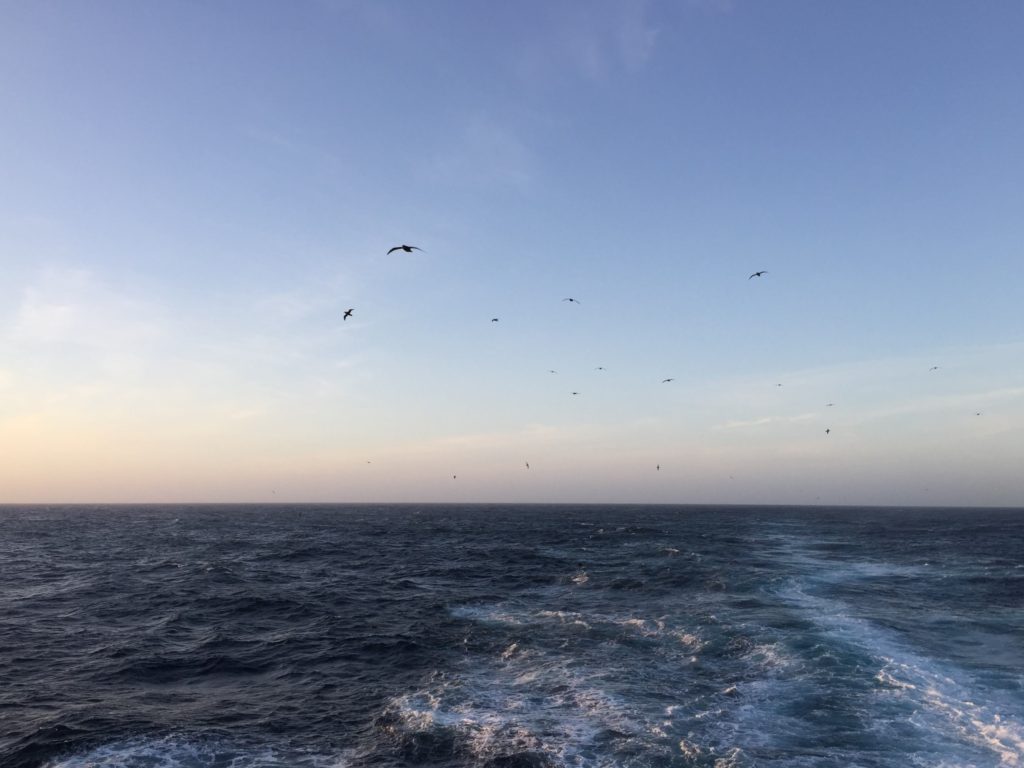
October 31: At Sea in Antarctica (Elephant Island and Iceberg A68A)
As we reached Antarctic waters, we were able to view Elephant Island from the ship. This was the location that the British explorer, Sir Ernest Shackleton, famously used as a safe haven for his 22 man crew after their boat became stranded in the ice. They heroically survived over four months living under two overturned lifeboat, while Shackleton sailed to the South Georgia Islands and back to get help. While in Canada we didn’t learn anything about Shackleton growing up, we discovered that the Europeans learn about Antarctic explorers in school and were fascinated to see Elephant Island.
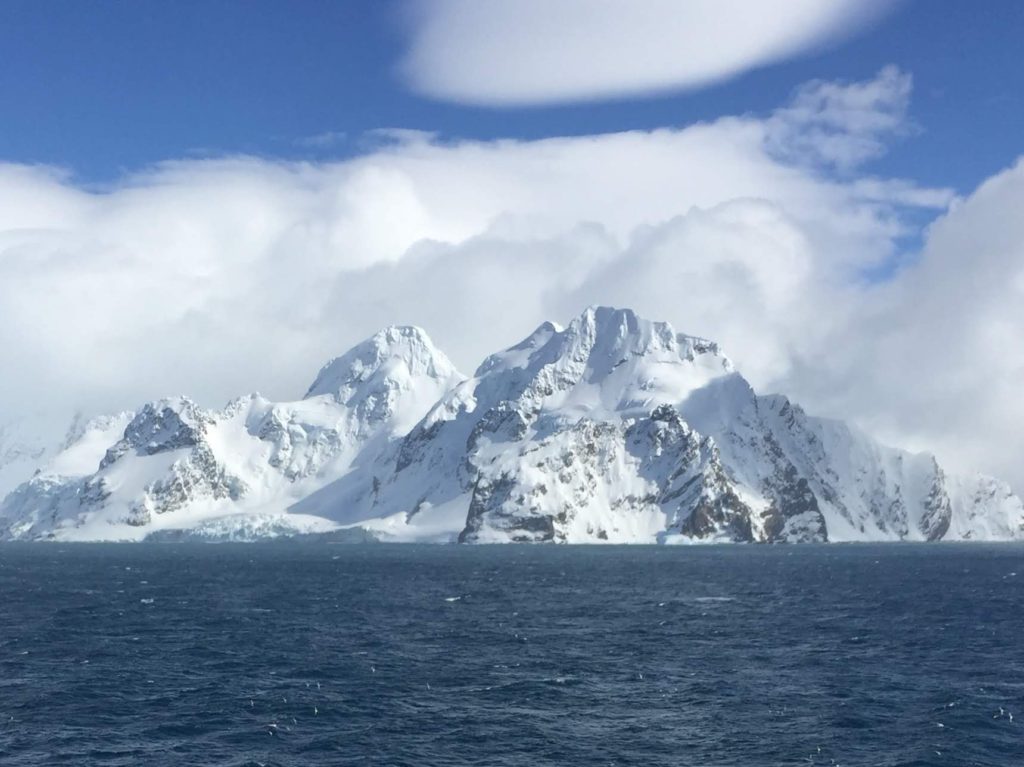
After Elephant Island, our captain sailed to Iceberg A68A, which is one of the biggest icebergs in recorded history. It has a surface area of 5,800 square kilometres and weight of 1 trillion tons! It had broken off from Antarctica in 2017. The name refers to where what quadrant in came from in Antarctica (quadrant A) and the order in which it was discovered (68).
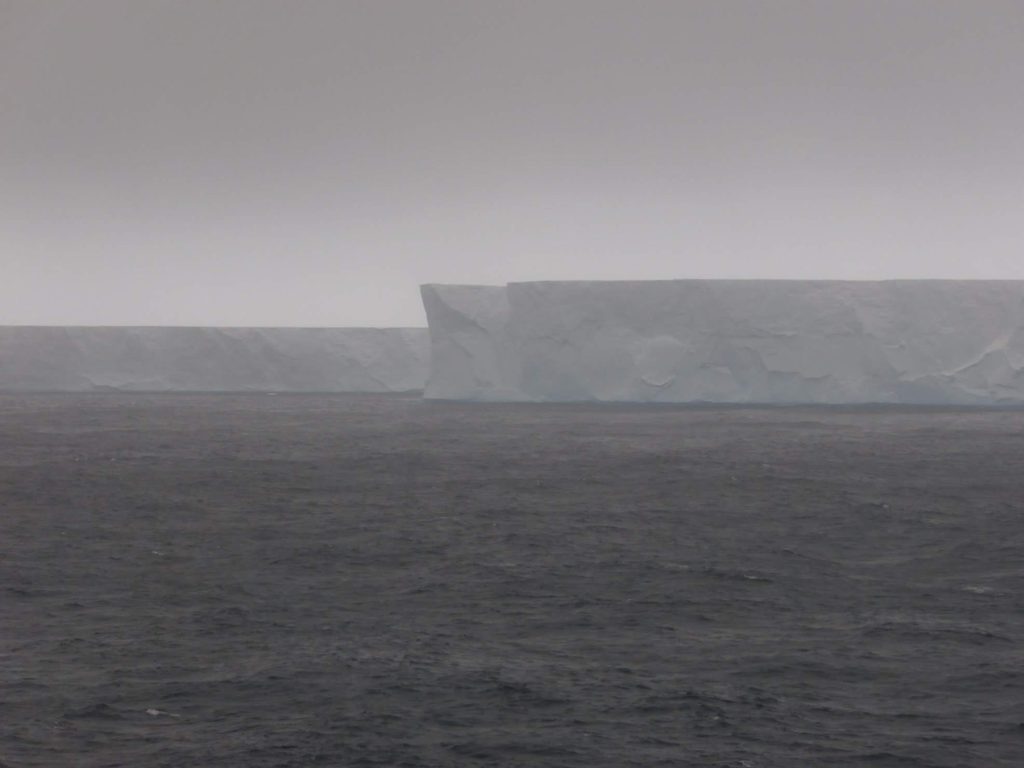
Since we were landing on Antarctica the following day, we were requested to vacuum our outer clothing layers. This was necessary to ensure that no foreign substances, such as seeds or bacteria, would end up on the continent and disrupt the ecosystem.
November 1: Whalers Bay, Deception Island
After a few days at sea, we were jumping for joy to finally land on Antarctica! Deception Island, one of the islands in the South Shetland Islands, is an active volcano. The island is shaped like a horseshoe and ships enter through a small 200 meter passage known as “Neptune’s Bellows”.
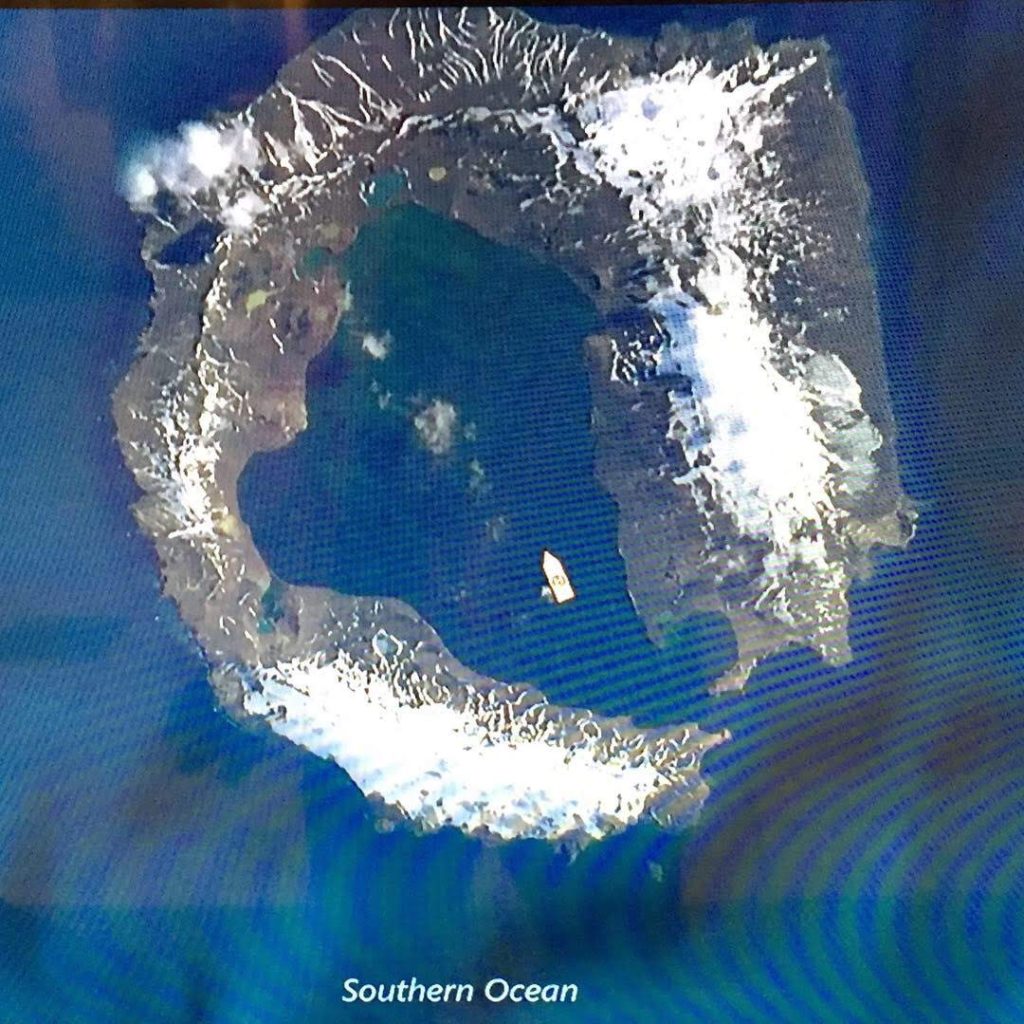
Our captain originally intended to dock near Telefon Bay, but the ice conditions prevented us from docking. Instead, we anchored the ship near Whalers Bay, which was home to multiple whaling stations. A couple of volcanic eruptions in the 1960s had destroyed the stations, ceasing all operations. The remnants of the stations are still on the island and are protected as heritage sites.
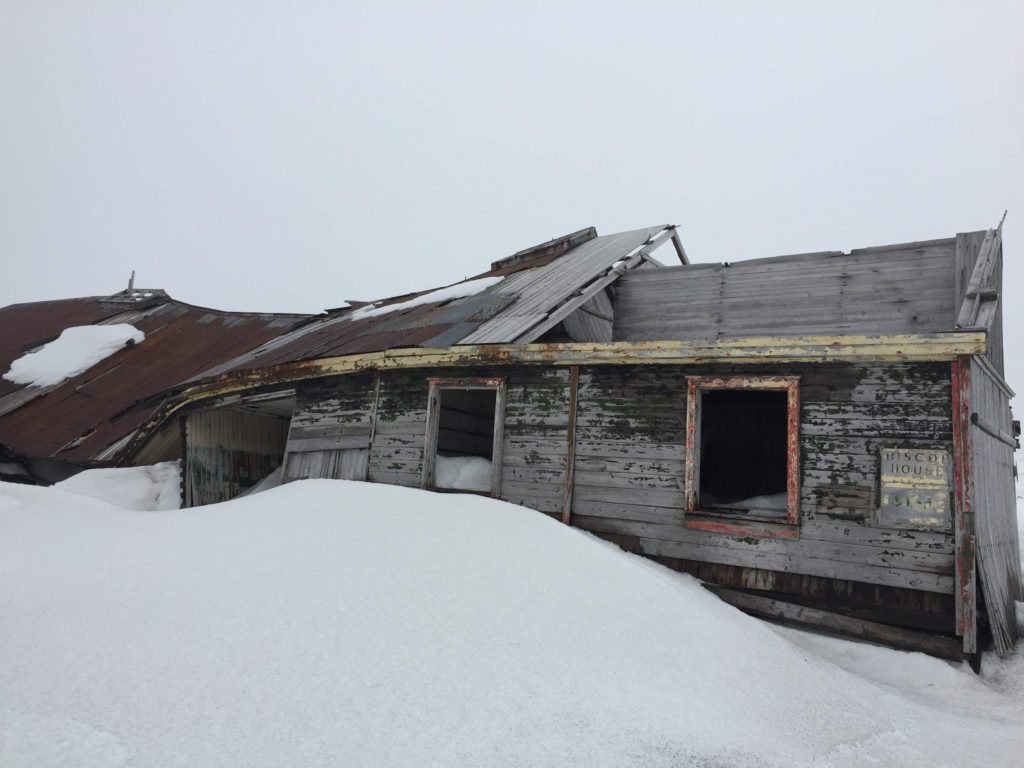
During our time on Whalers Bay, we enjoyed hiking up to a ridge and to “Neptune’s Window”, which offered breathtaking views of Deception Island and the surrounding sea! We also watched penguins happily swimming near the shore!
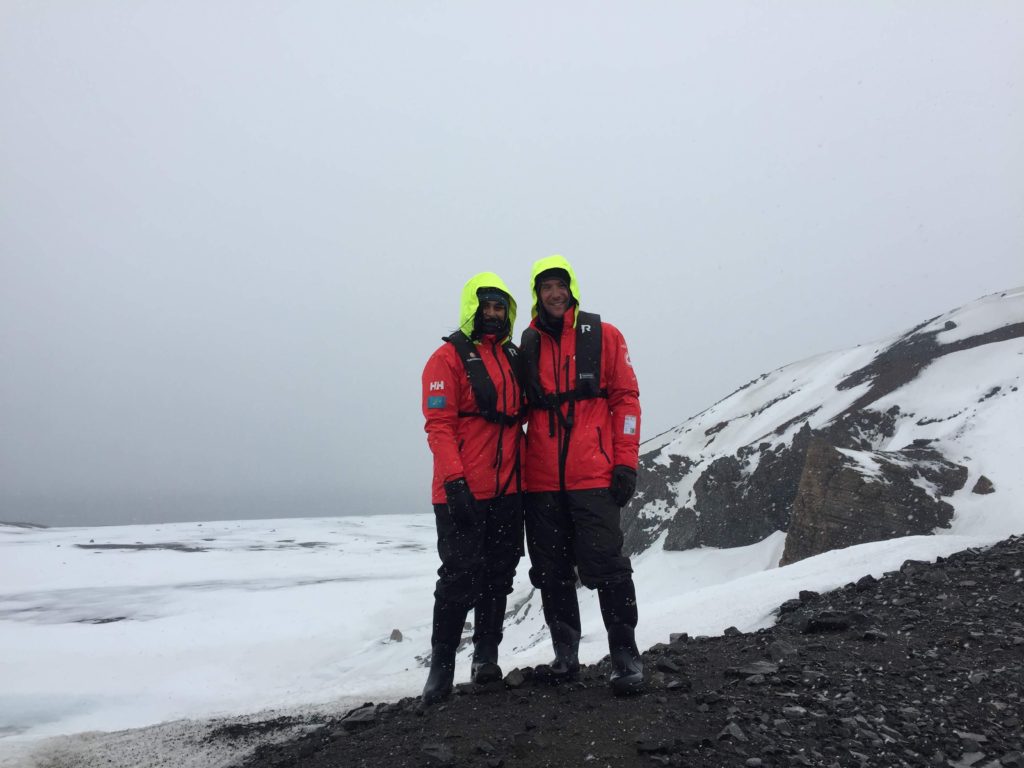
I decided to bravely join the penguins by taking a polar plunge into 1 degree waters! I was awarded a certificate of my accomplishments of swimming in an active volcano in Antarctica!
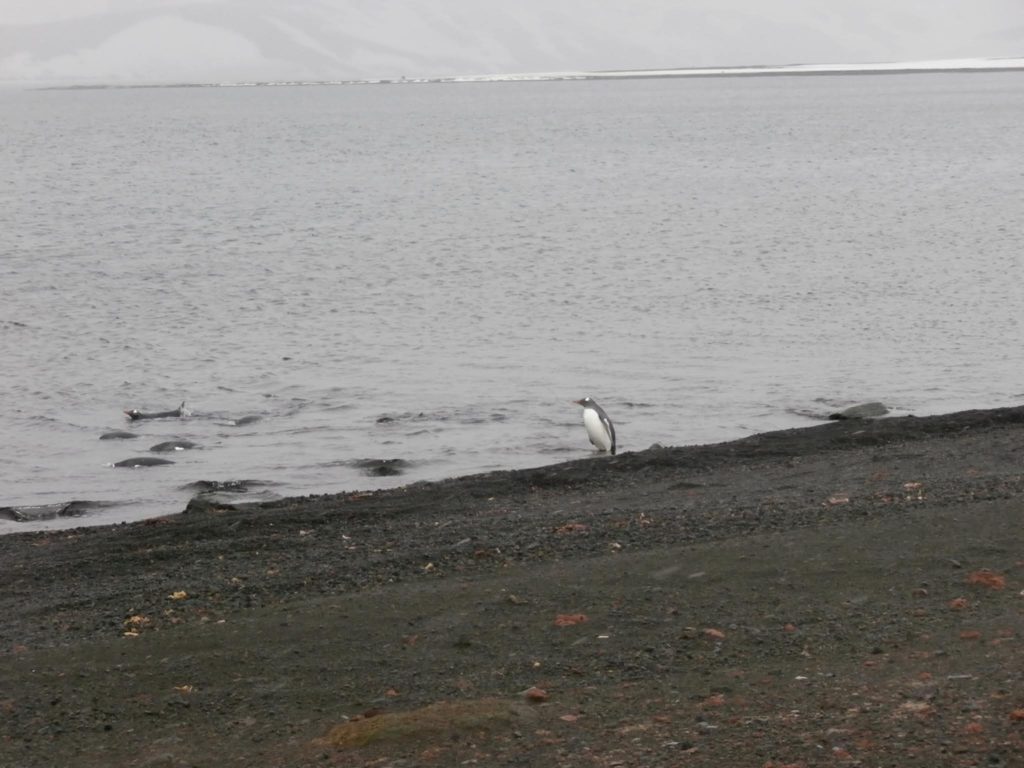
November 2: Orne Harbour/Danco Island/Andvord Bay/Neko Harbour
An interesting part of taking an expedition to Antarctica is that weather conditions can change at any time, therefore intended landing points may need to change as well. Our original plan was to land at Orne Harbour, but the ice conditions restricted us from landing. The ship then went to Danco Island, but a huge whiteout snowstorm foiled those plans.
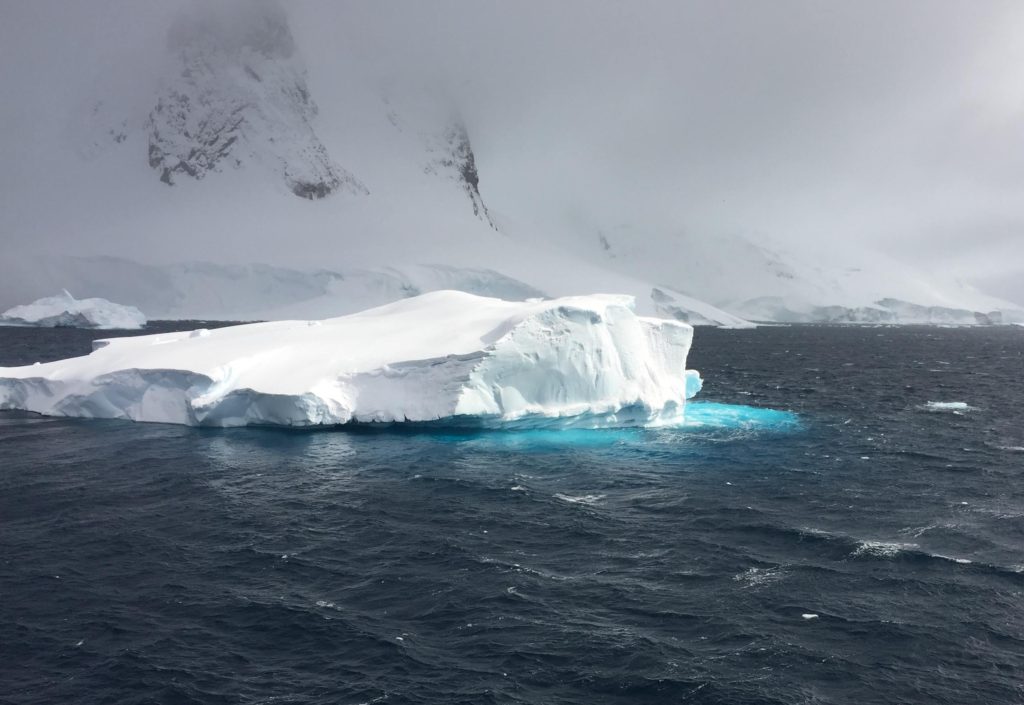
Our next location was Andvord Bay, and while sailing there, we were notified that there were Orca whale sightings near the ship! We quickly went outside and were delighted to see a pack of Orcas diving in and out of the water! It was quite a sight! Although we could not see it with the naked eye, one of the photographers actually captured a picture of the whales feasting on a seal!
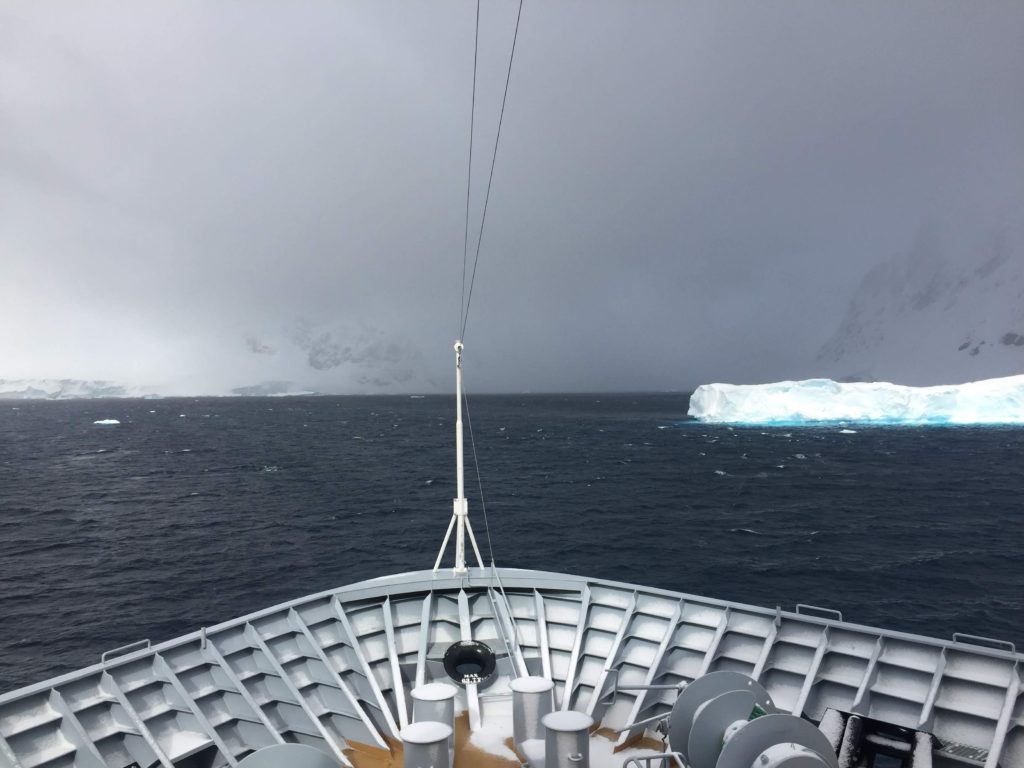
Shortly after, we successfully landed in Neko Harbour! The weather cooperated and we had an amazing day! We first cruised between icebergs in a tender boat around Andvord Bay. There were many penguins diving in and out of the water and even a fur seal relaxing on an iceberg, who gave us a big wave before jumping in! We were awestruck.
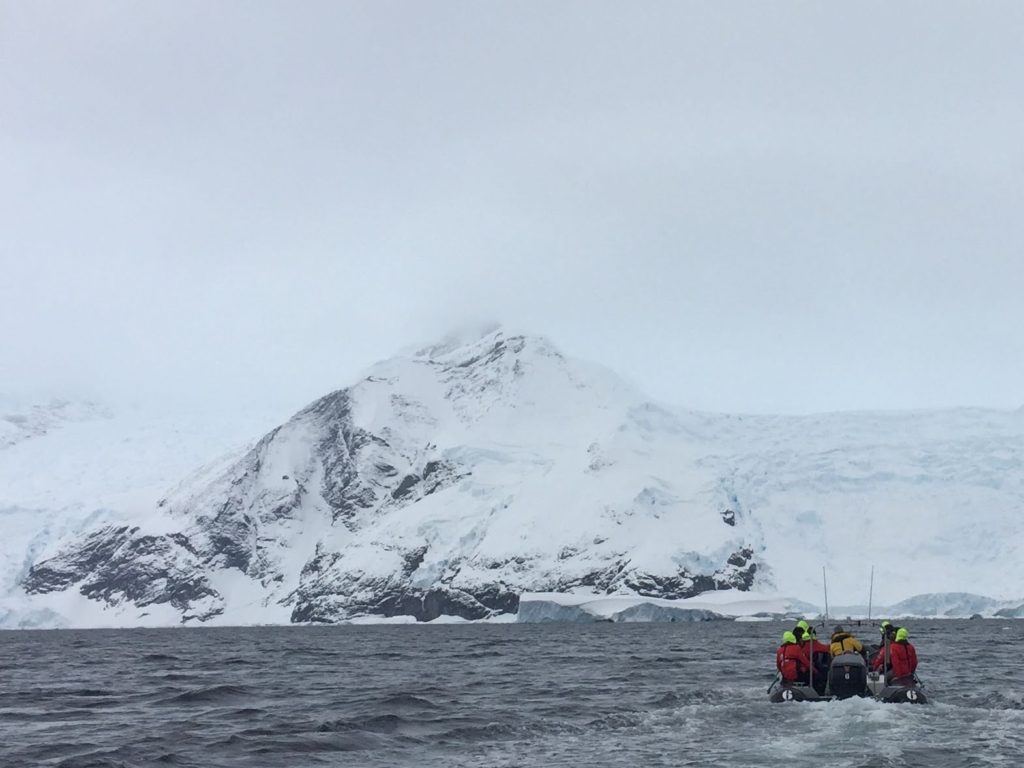
Later in the day, we stepped foot on the Antarctica peninsula for the first time. This felt like the most “Antarctic” of anything we had experienced! We were surrounded by ice covered landscapes, the deep snow almost reached our knees, an incredible glacier was calving in the harbour, a crabeater seal greeted us on shore, and there were Gentoo penguins everywhere!
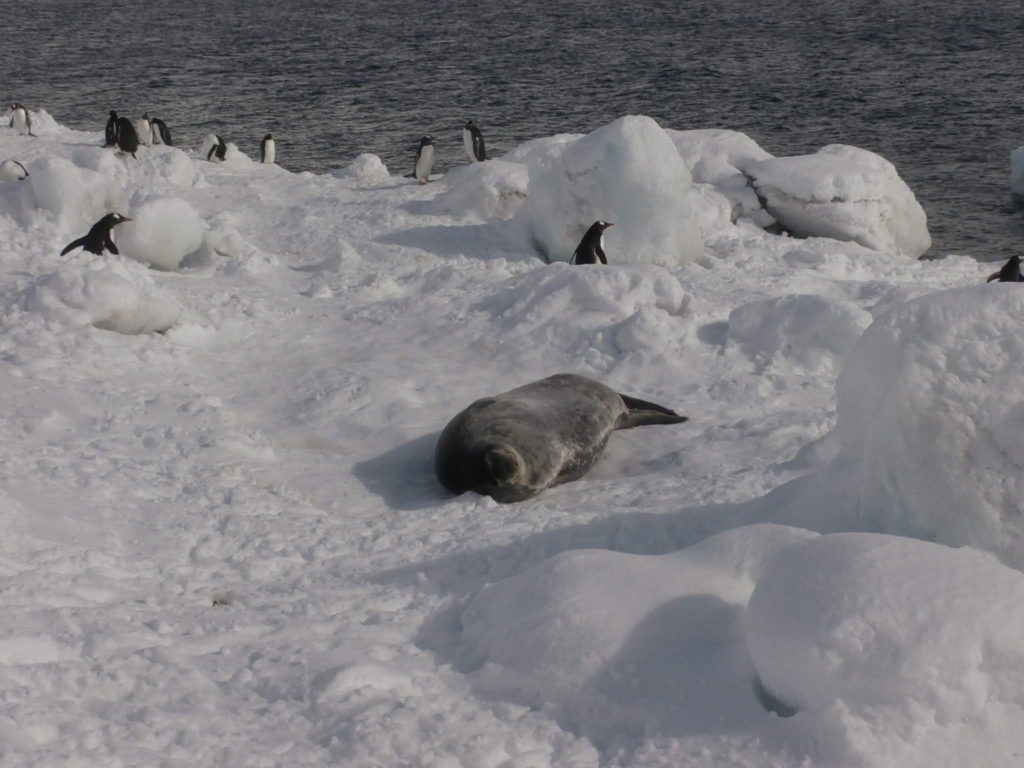
Because the snow was so deep, we could only explore a small area, but it was awesome! Upon landing we saw the crabeater seal lounging in the snow and penguins wandering around on the beach. The expedition team shovelled a path for us to an area with hundreds of Gentoo penguins waddling around.
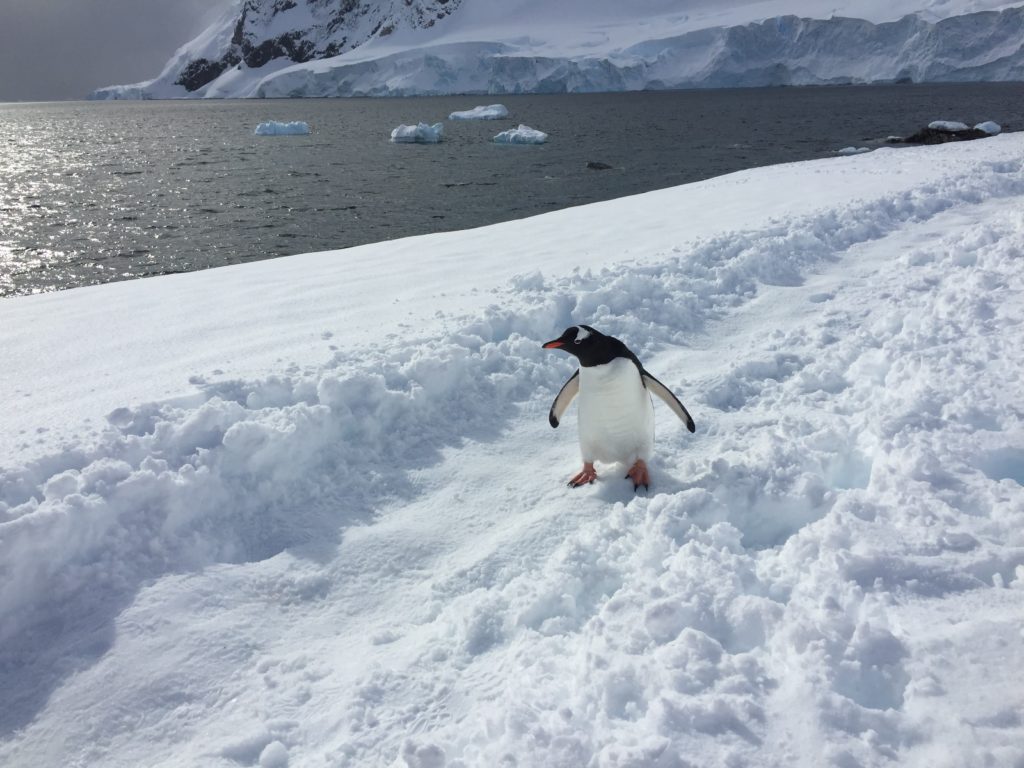
We stood still, mesmerized by these incredibly cute and interesting sea birds, as they curiously walked within a metre or two from our feet.
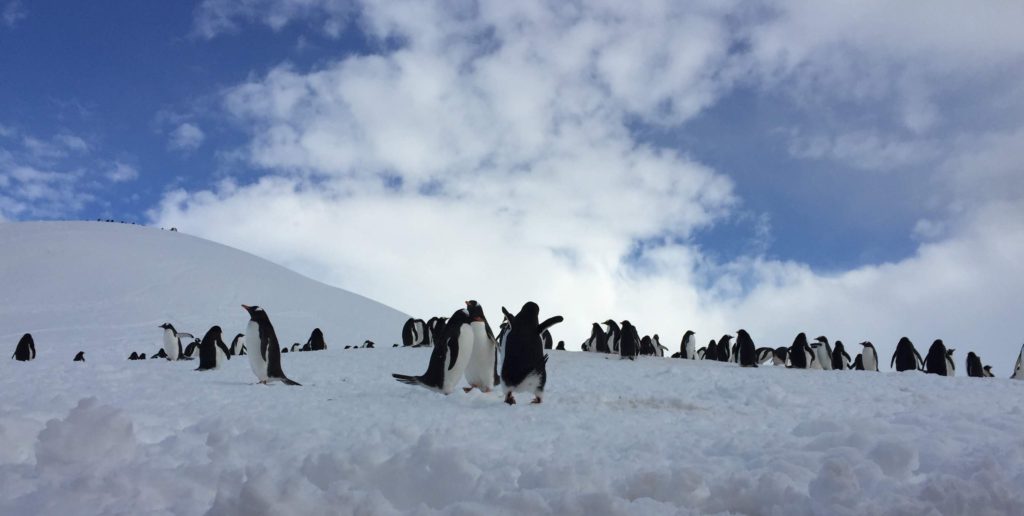
We were warned that the calving of the glacier may cause a typhoon and we would have to move away from the beach, however, this did not occur while we were on shore.
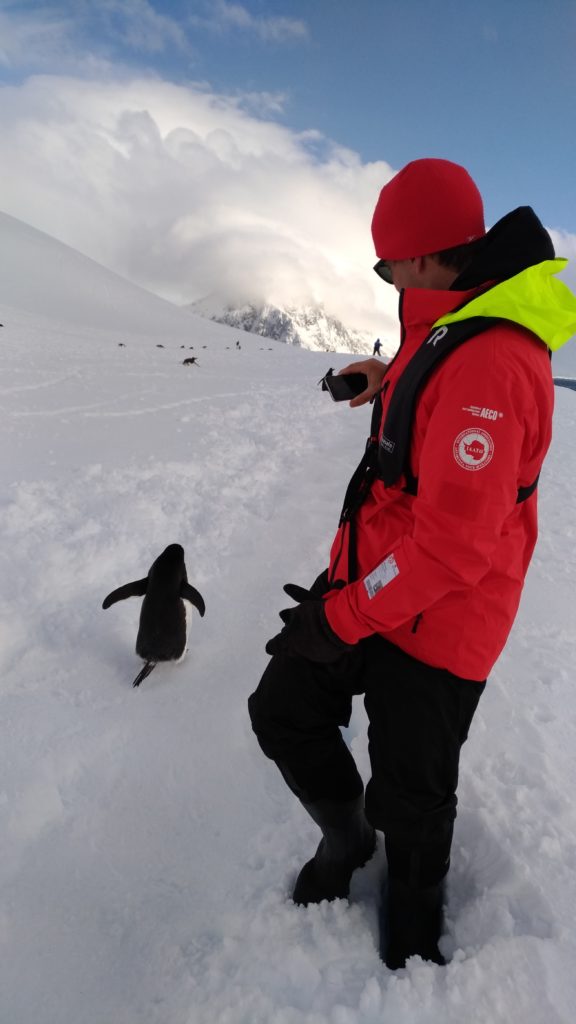
Our hour and a half on land seemed to be over and before we knew it, we were on the tender boats heading back to the ship.
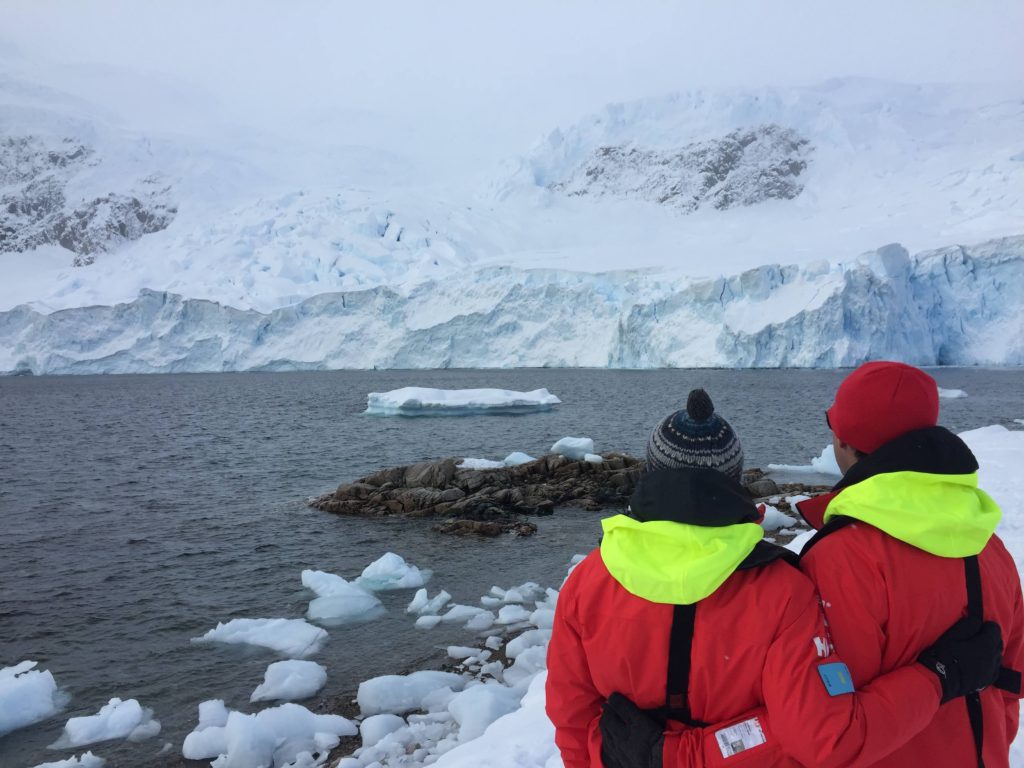
November 3: At Sea in Gerlache Strait
We awoke to unfortunate news that we would be at sea all day as a giant storm with hurricane-strength winds was approaching. This prevented us from disembarking the ship. Outside, there was a huge blizzard! There was so much snow on the outside deck that the staff had to shovel it into the ocean.
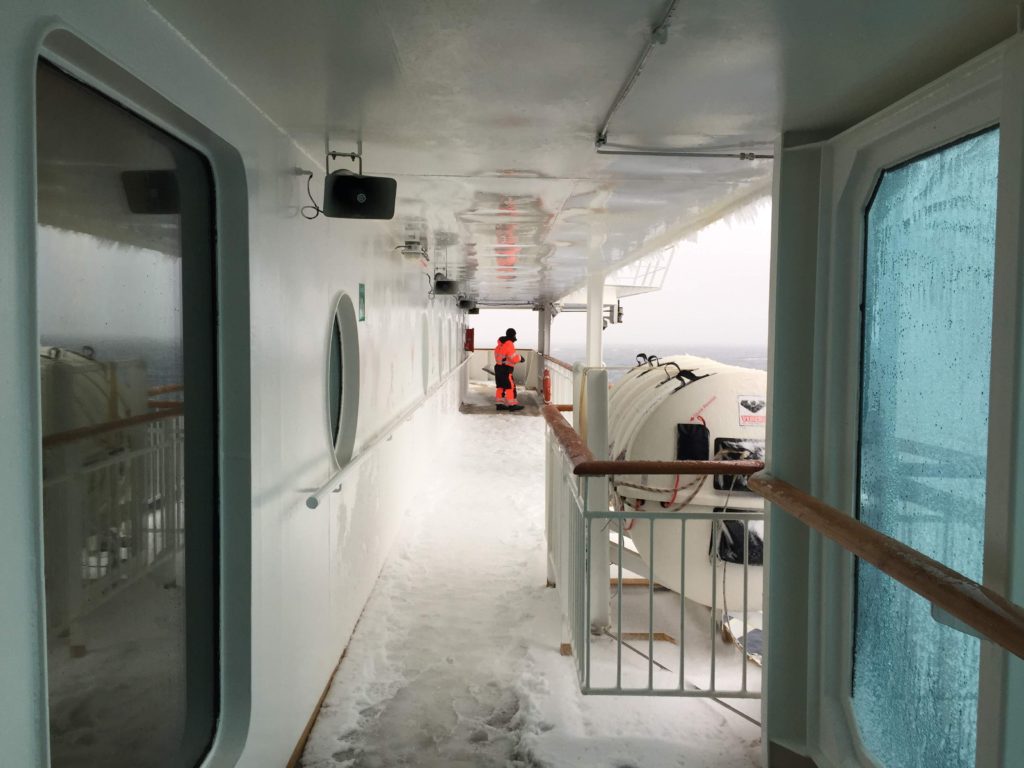
The top deck had so much snow that someone even made a snowman, complete with a carrot nose!
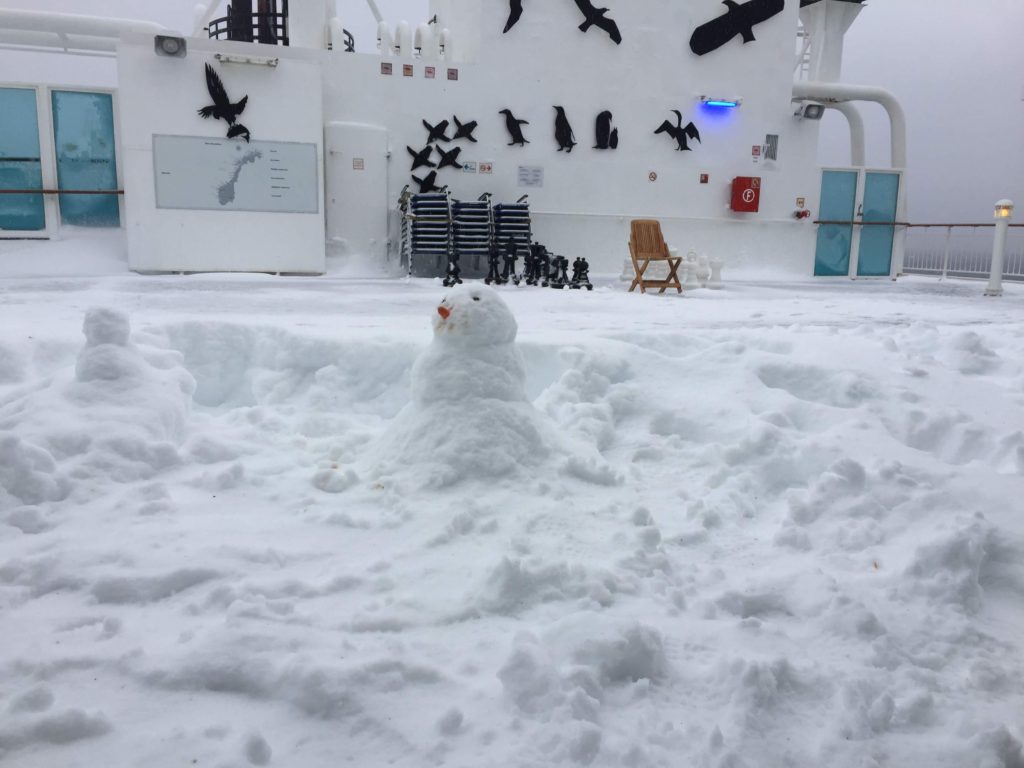
Later in the day, our bad news became worse news, as the captain informed us that we needed to head to Ushuaia, as the weather conditions would be unsafe. The approaching storm would compromise our safety and the captain needed our ship to stay ahead of it. We were so upset that our Antarctica trip was cut short, but happy that our captain was concerned for our safety.
November 4: At Sea in the Drake Passage
On this day, our ship reached the famously rough Drake Passage, and of course we had storm conditions. Water from the giant waves crashed onto the outdoor deck, causing areas of the ship to be closed to passengers due to safety concerns.
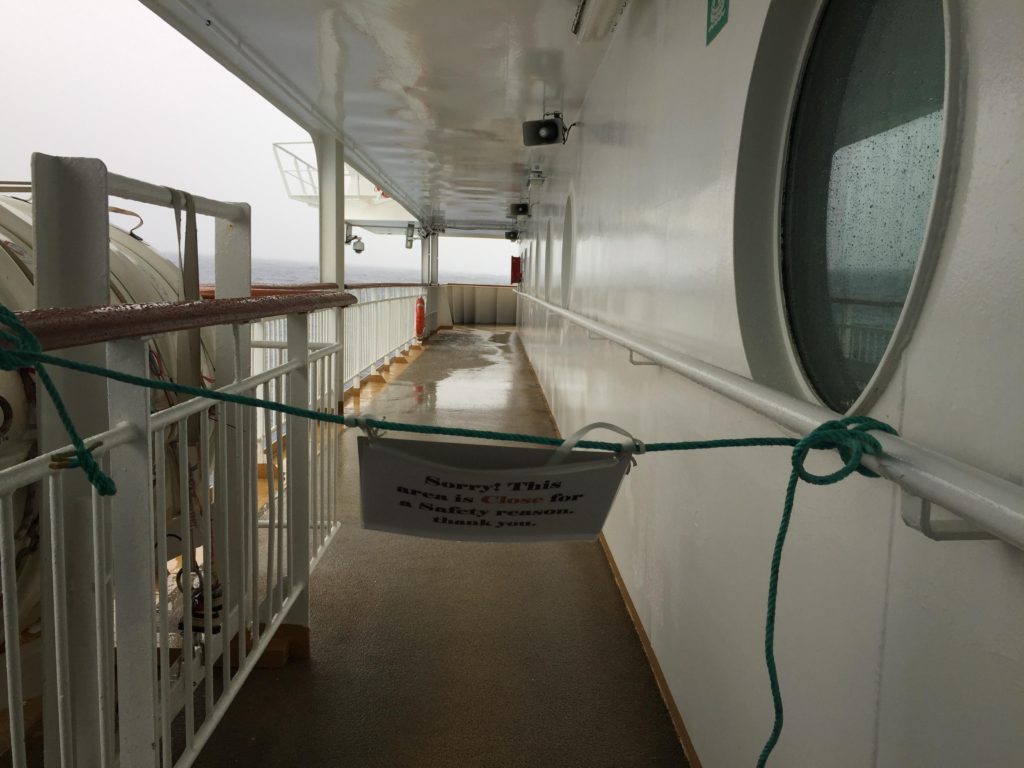
We certainly gained a new appreciation for the struggles that the early explorers faced as they navigated this treacherous area!
November 5: At Sea
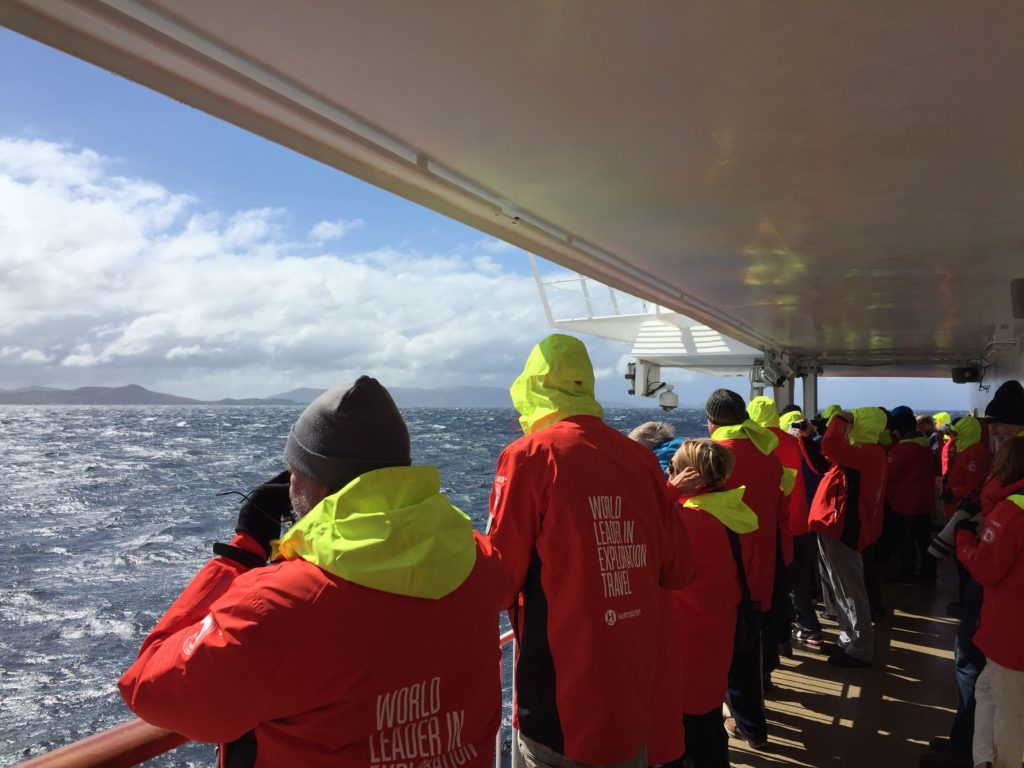
November 6: Ushuaia
In the morning upon docking in Ushuaia, we boarded a bus to Tierra del Fuego National Park. Although it was a cloudy day, the park was beautiful, with postcard-worthy scenery of cascading mountains behind crystal clear lakes and yellow blooming calafate (a flower native to Patagonia).
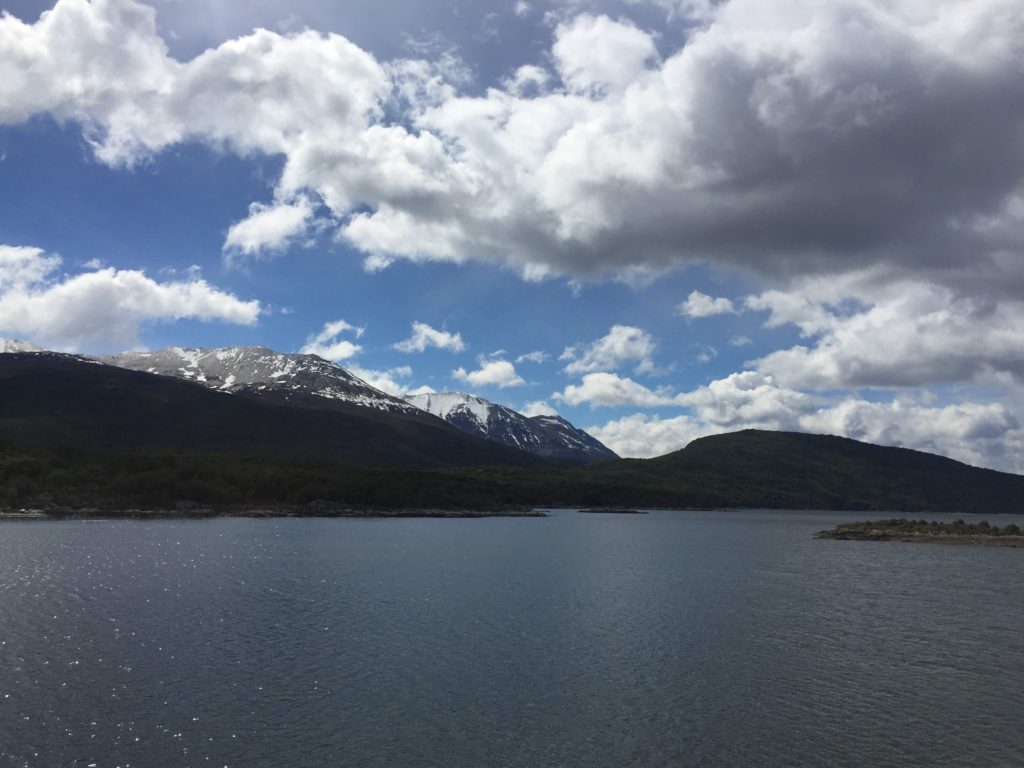
The bus tour only provided us a limited time at each stop, but it was enough to get an overview of what the park had to offer. In the afternoon, we walked around the small town and were happy to connect with family using the free wifi in the port!
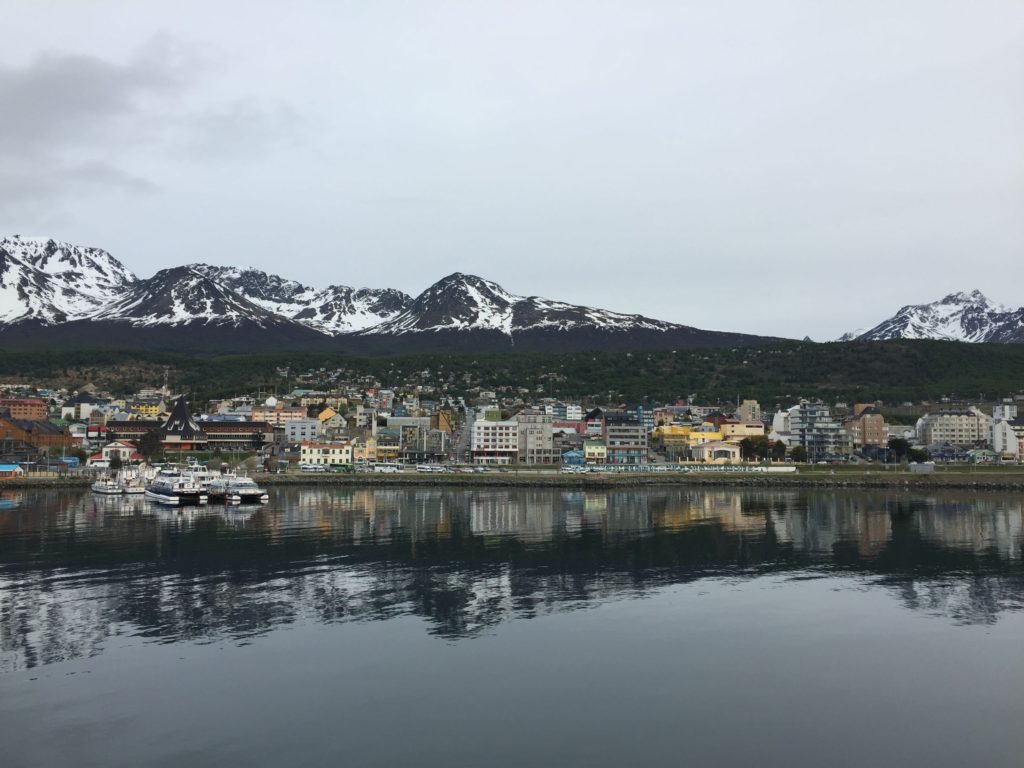
November 7: Ushuaia-Buenos Aires
Our final day included a charter flight to Buenos Aires, capping off an unforgettable adventure at sea!
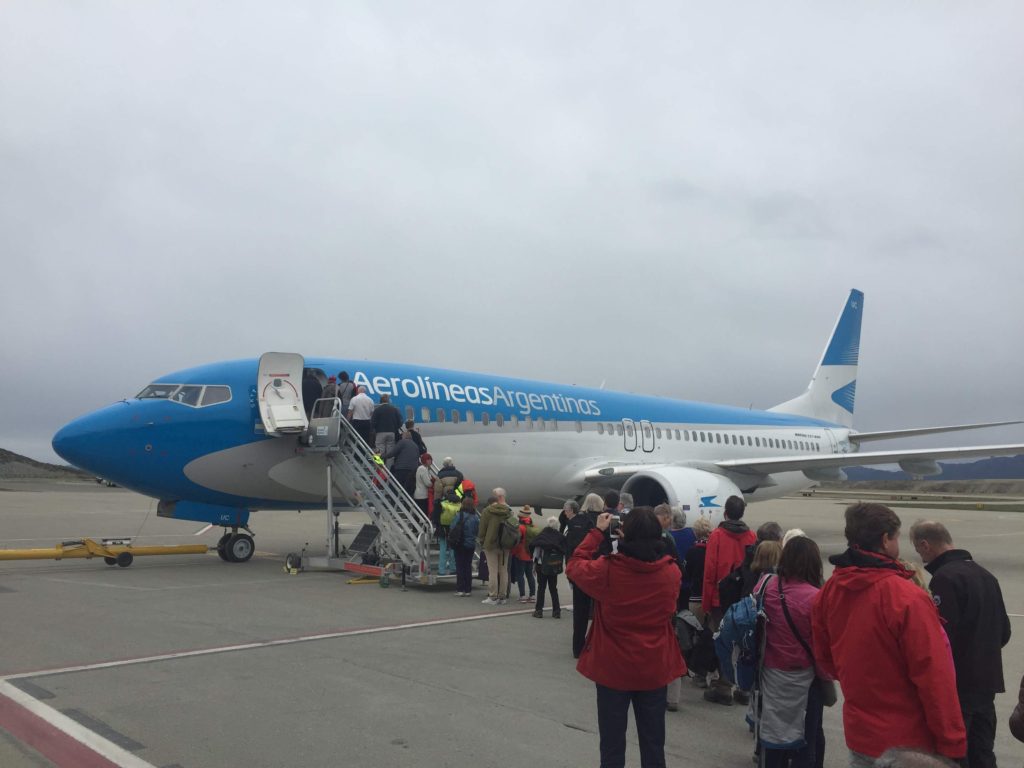
Although our time in Antarctica was cut short due to weather, it was still one of the most memorable adventures we have ever had! We were able to see icebergs, penguins, glaciers, whales, and even do a polar plunge. We are so lucky that we were able to experience the magic of Antarctica. When the expedition ended, we were ready to board another ship and do it all over again!
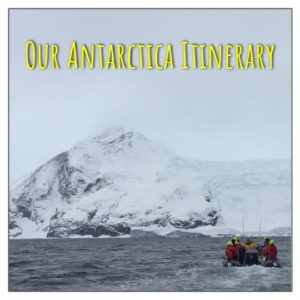
Disclosure: Please note that this site may contain affiliate links to products. We may receive a small commission for purchases made through these links at no extra cost to you.
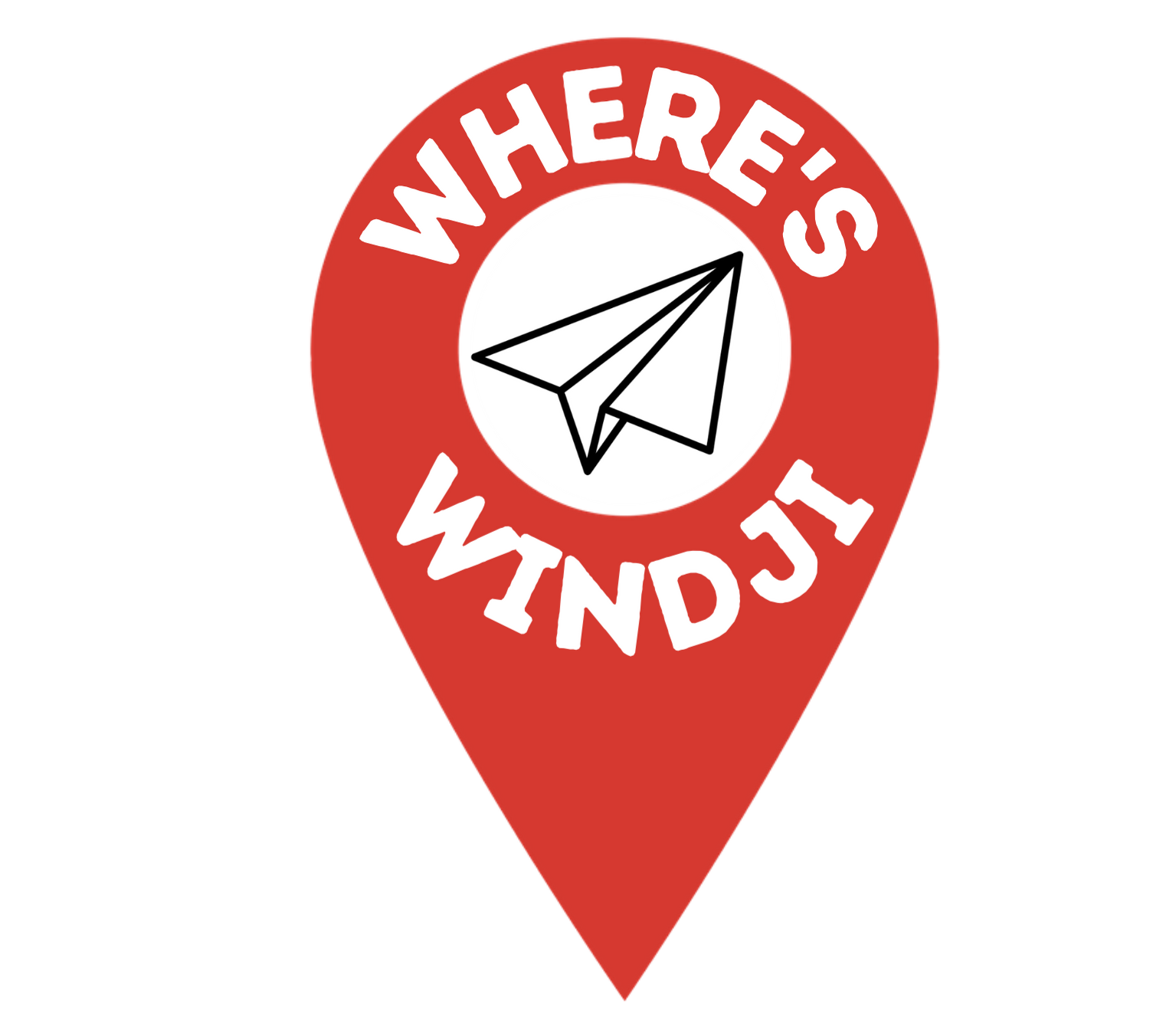
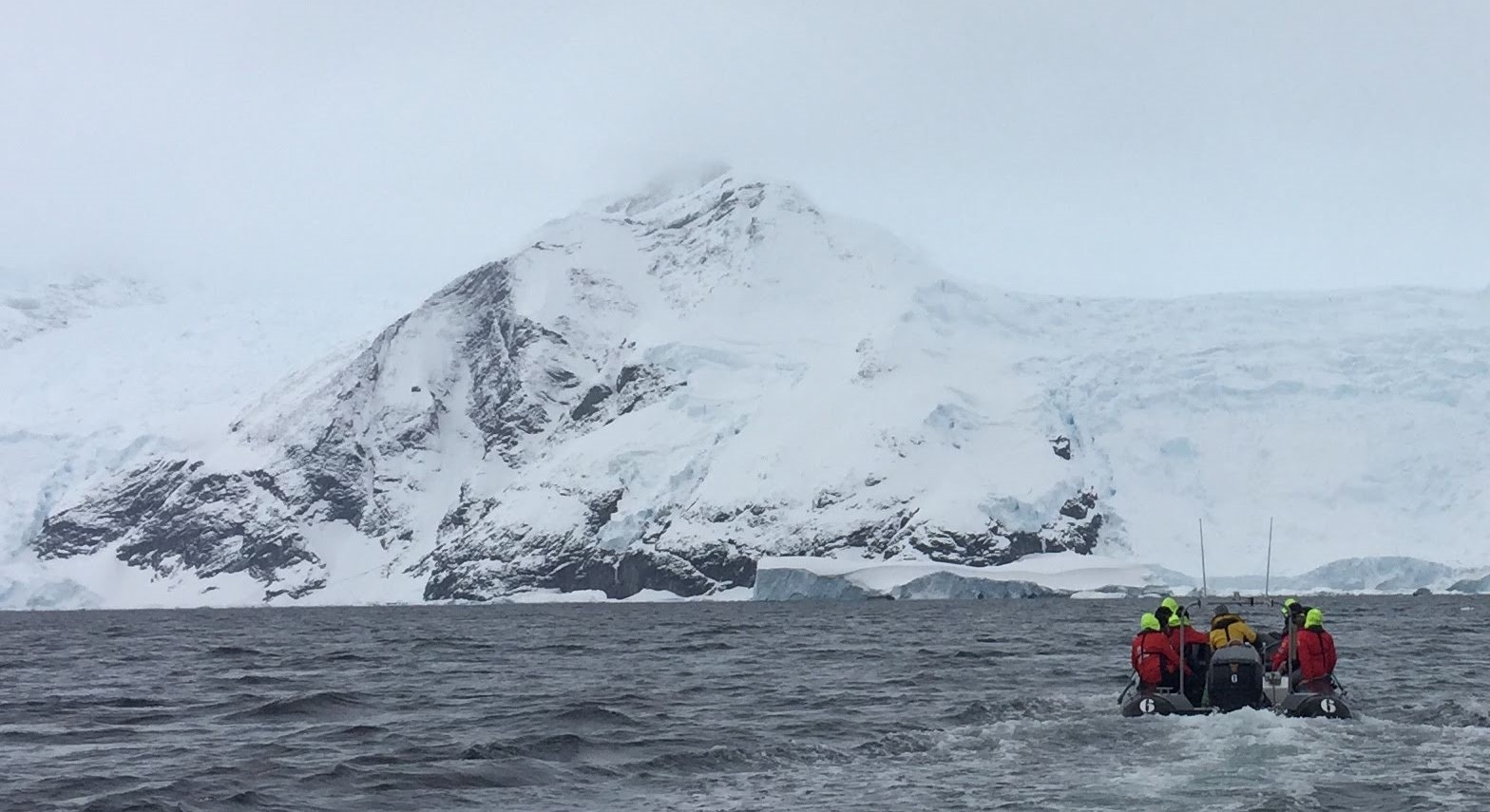
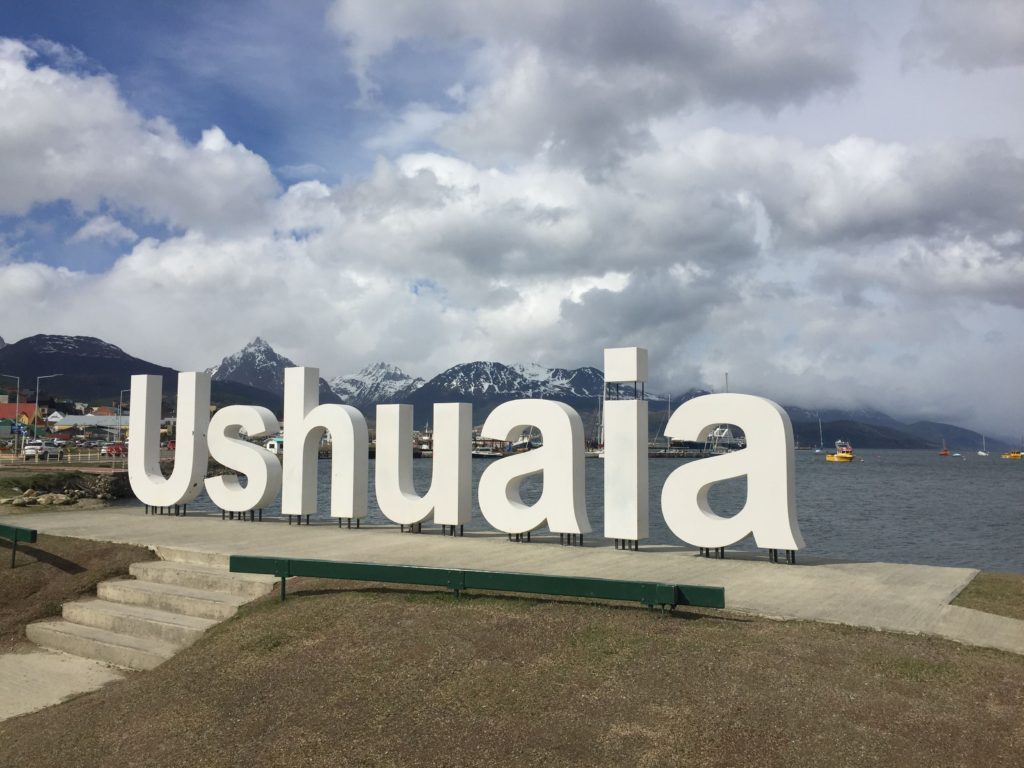
Bonjour,
Je viens de voir votre site qui me rappelle beaucoup de bons souvenirs, car j’ai fait le même périple, aux mêmes dates, mais en 2019 avec également le même navire le MS Midnatsol. Vous pouvez regarder mes photos sur mon site (en français) : http://claude.bardy.online.fr à la rubrique “Photothèque”.
Cordialement.
Hello,
I just saw your site that reminds me a lot of good memories, because I did the same trip, on the same dates, but in 2019 with the same ship the MS Midnatsol. You can look at my photos on my site (in French) : http://claude.bardy.online.fr under the heading “Photothèque”.
Cordially.